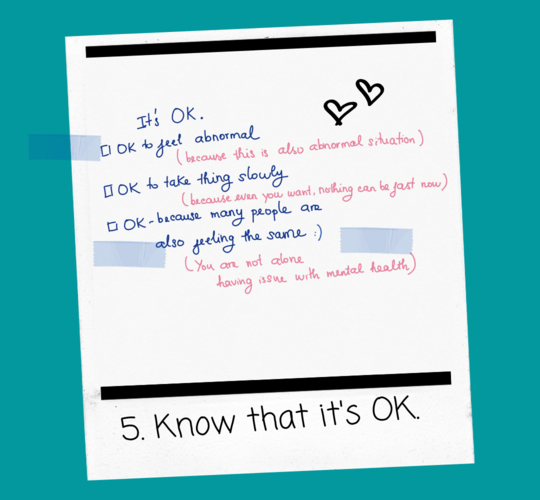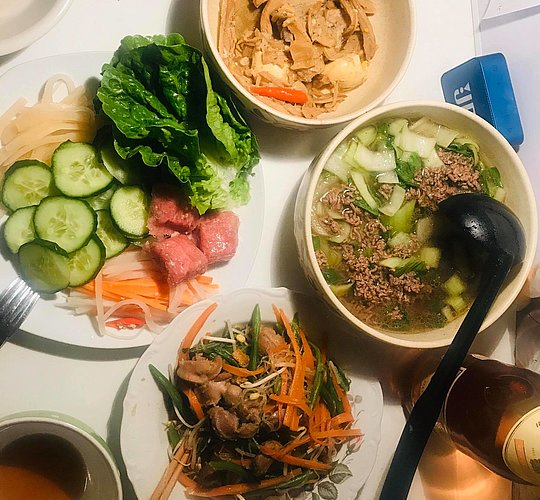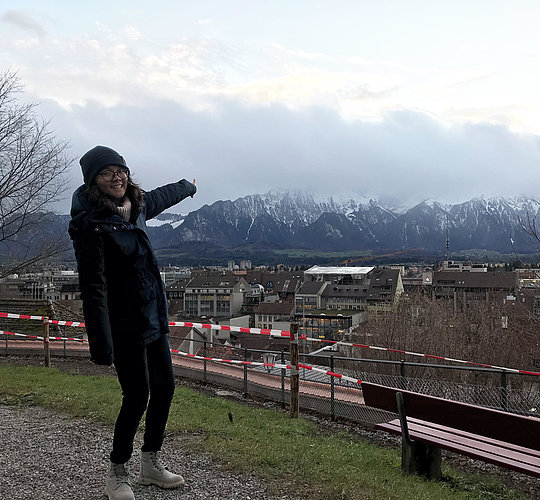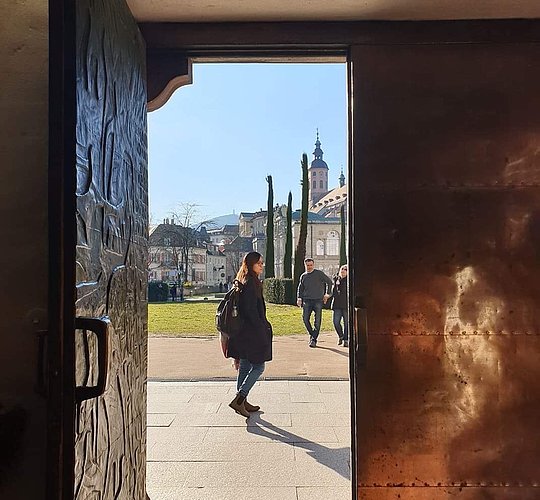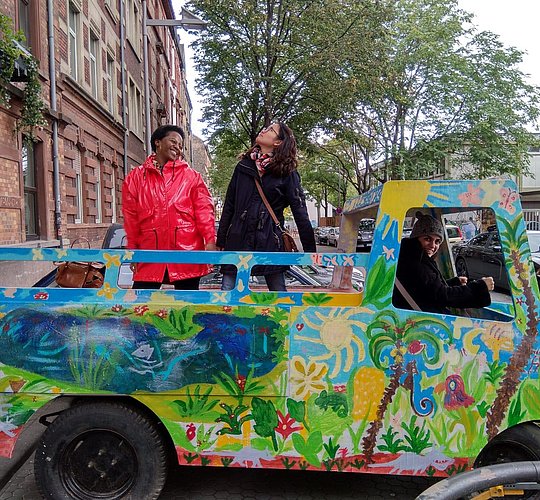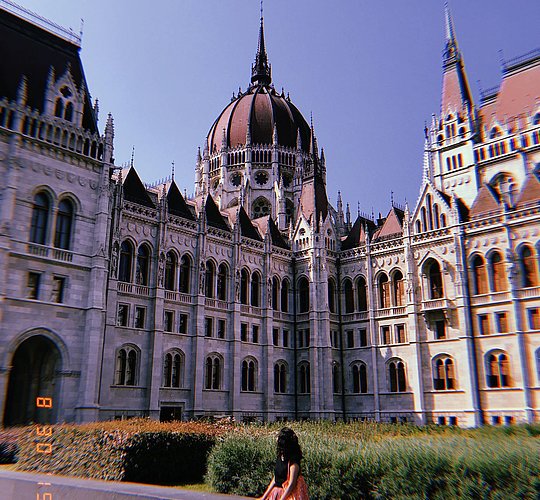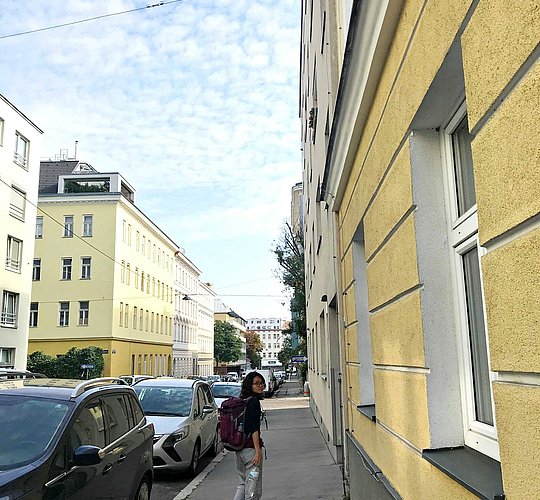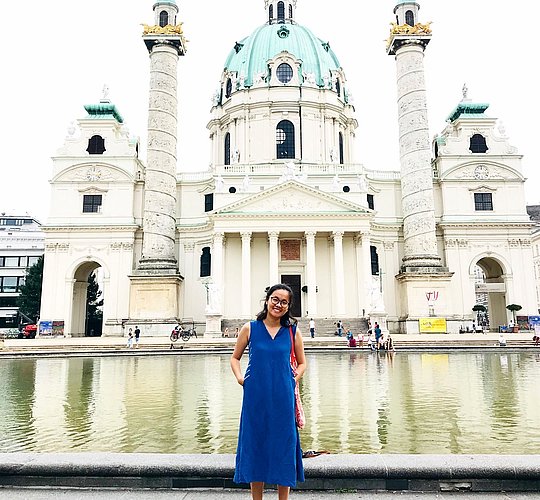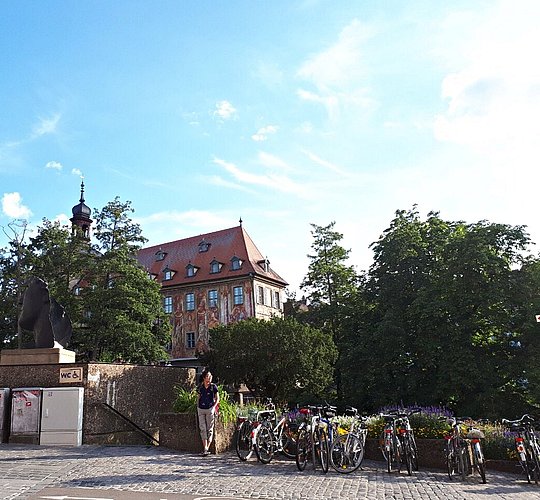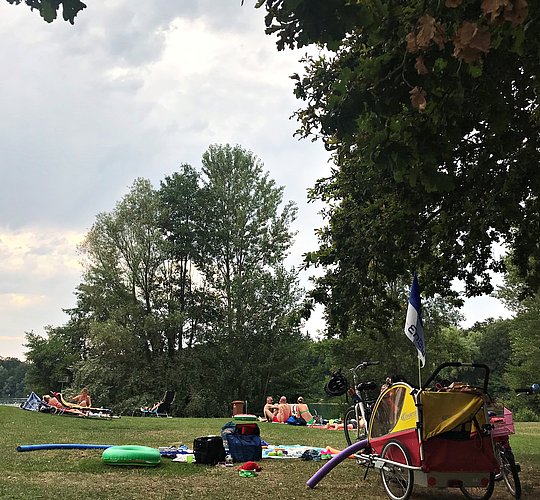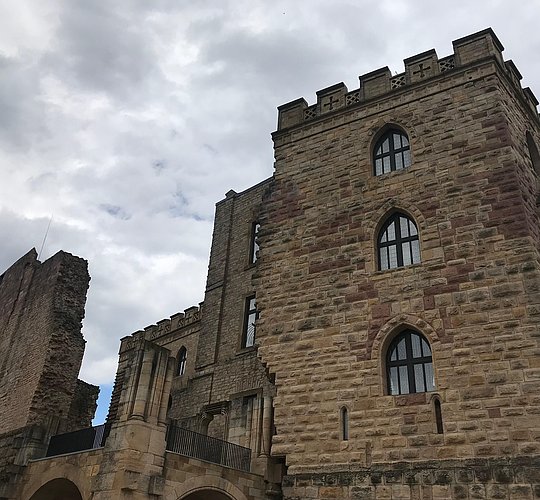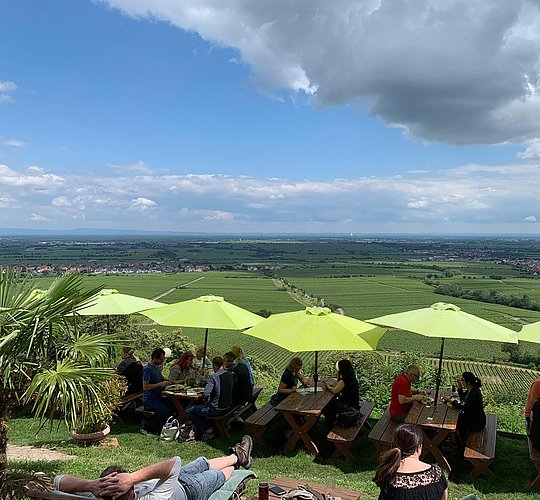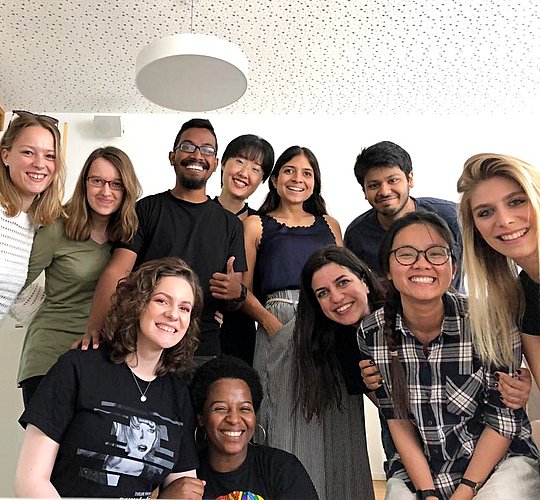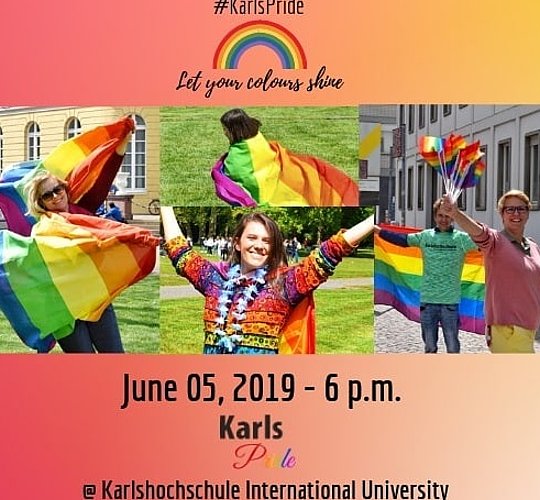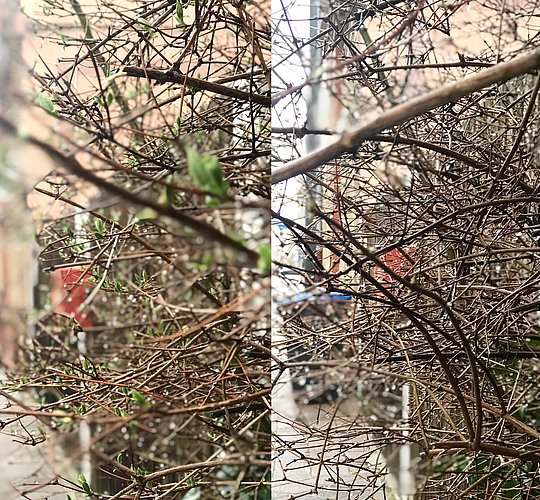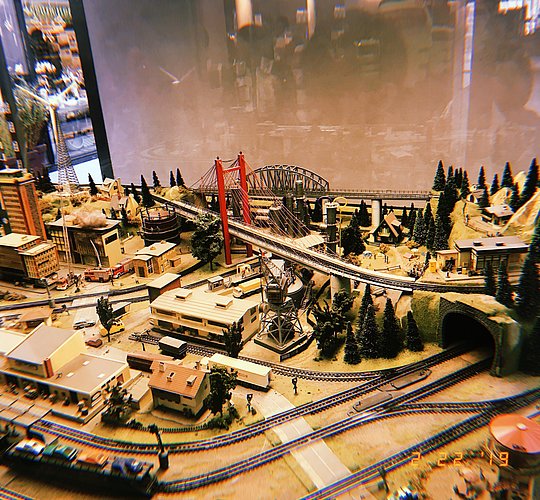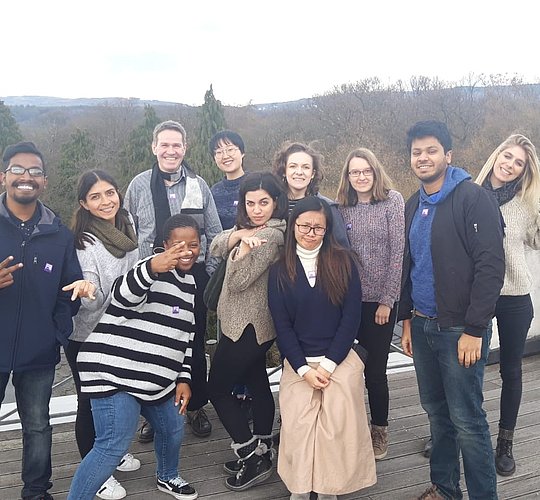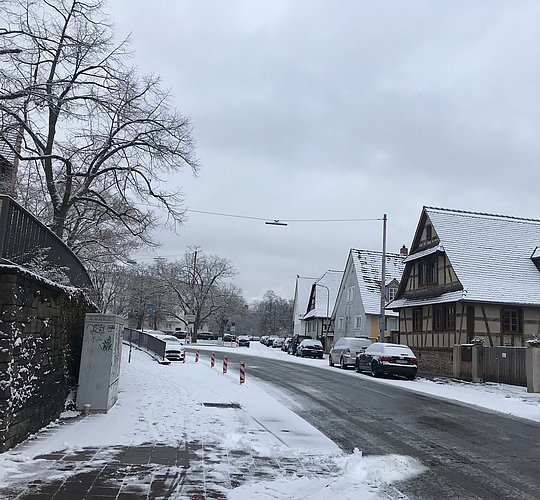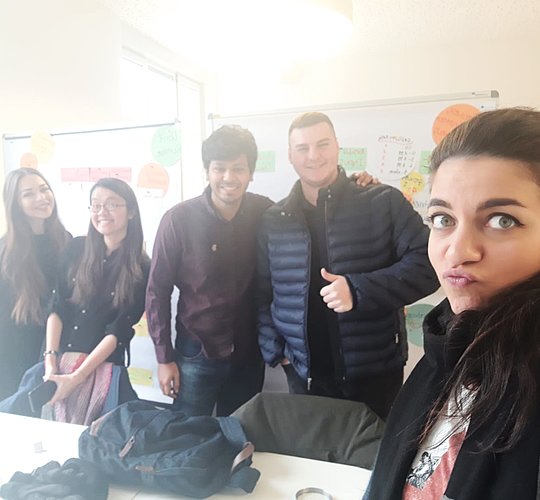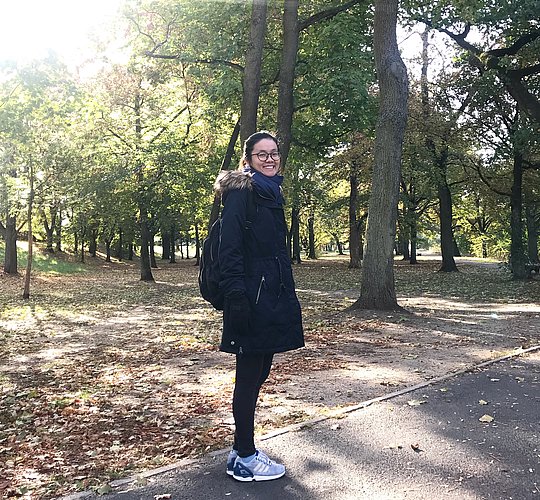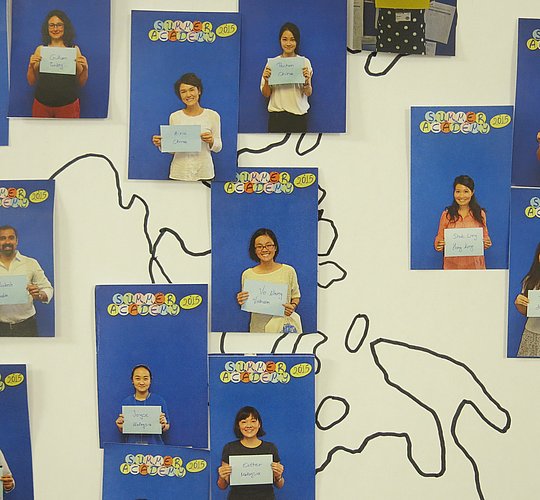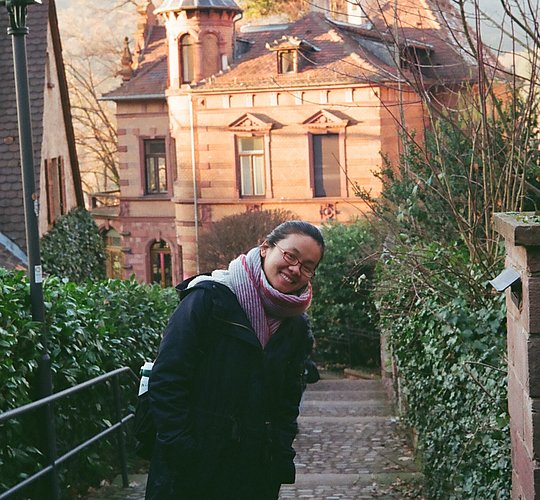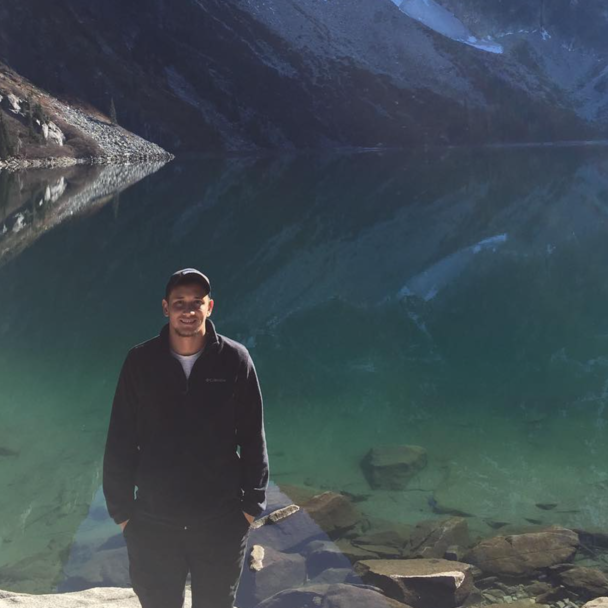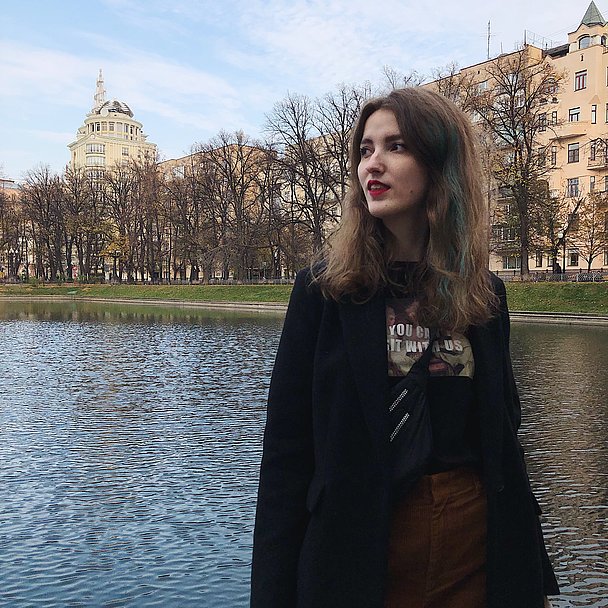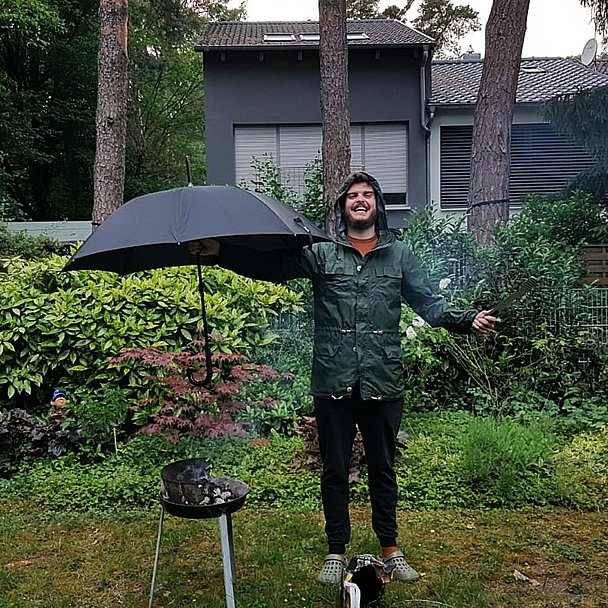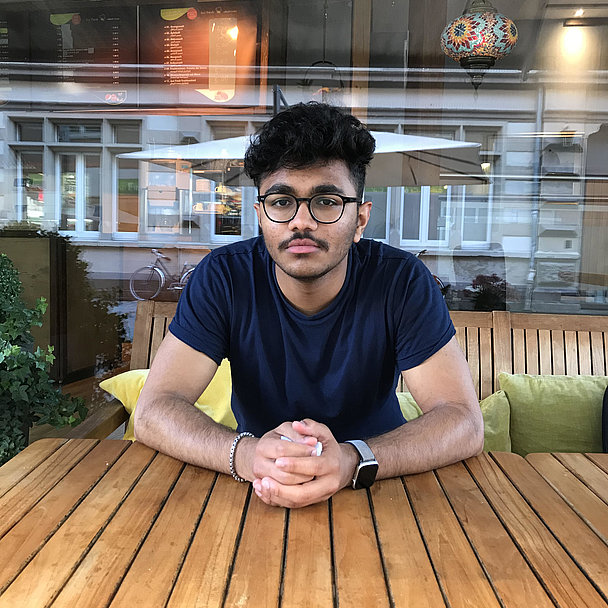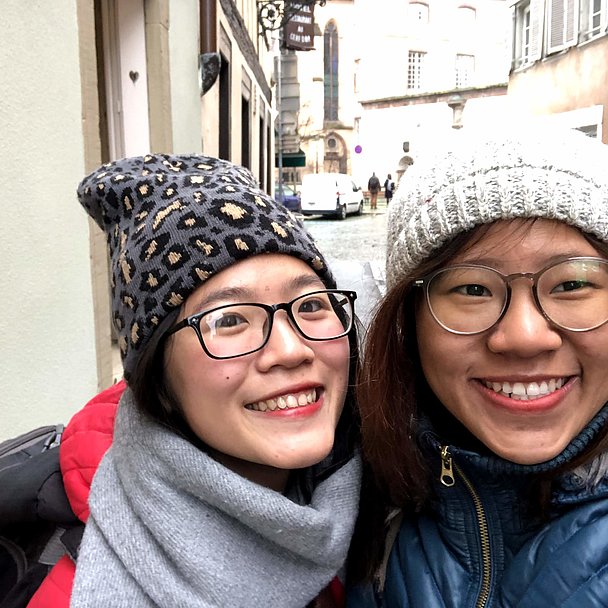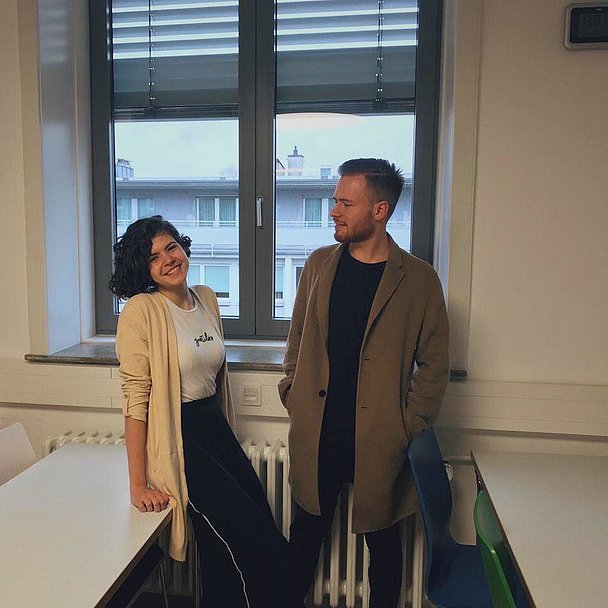Bạn có câu hỏi nào thêm về Karls hay về việc học không? Chỉ vần liên hệ với mình! Mình rất sẵn lòng hỗ trợ và hy vọng có thể giải đáp với những thông tin mình có!
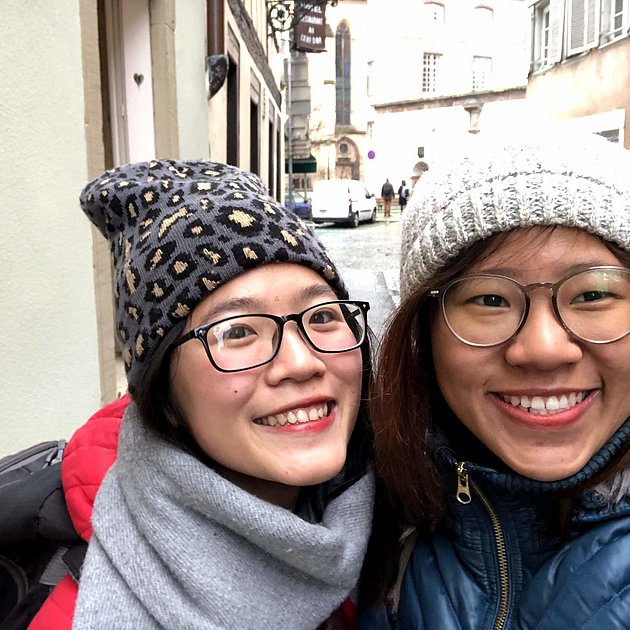
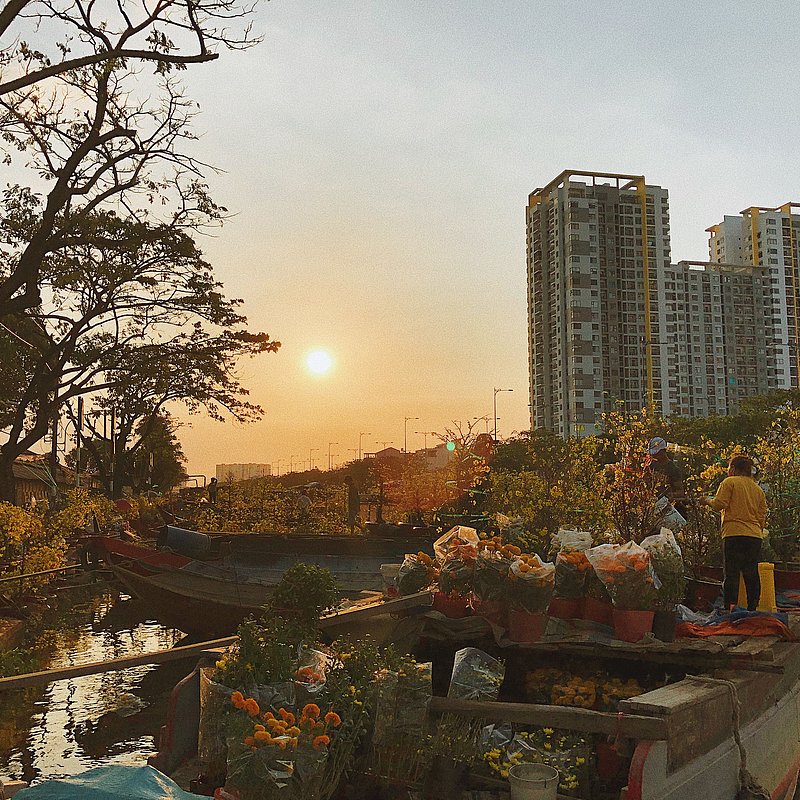
Ngan & Phuong
Hi everyone, I am Ngan and currently studying International Business (Marketing) at Karls. I have been a part of Karls since 2019 with my International Foundation Year (IFY) for 1 year before starting my bachelor's journey. Studying abroad is one of my big dreams, so I would like to seek opportunities for fulfilling my dream. However, the most considerable part is financial statements. By accident, I found Karls as an amazing place where is the most appropriate for my family's budget. Not only did I choose Karls for this reason, but I was also amazed by the international studying environment here. Additionally, Karls is an open university where I easily express my opinions and new ideas. From my point of view, the teachers here are really helpful, and they accompany me on every single journey at Karls. Therefore, being a part of Karls makes me feel warm and has encouragement to explore and strengthen my abilities. Furthermore, being in the heart of Europe leads me to be more adventurous and I can easily get access to a wide range of cities or nations from Karlsruhe. Honestly, studying abroad has changed me a lot, it turns out to be more positive due to the new upcoming every single day. I hope that being one of the Vietnamese ambassadors may assist you in understanding the Karls environment and accompanying you in your new amazing journey as well.
Servus, My name is Phuong and I'm from Nghe An Province, Vietnam. I have been walking on this exciting path at Karlshochule since September 2019 as a student in the International Foundation Year. Now I am in the first semester of International Business with the specialisation on Intercultural Management. I have to say that, studying at Karls is certainly a turning point in my life. To me, Karls is such an inspiring place where you have chance to study and socialize with people from all walks of life all over the world. Being in this dynamic group of people makes me realize how little I know about the world, but isn't it splendid to think of all the things there are to learn about? At Karls, the lectures always operate as interactive classes, lecturers often present a topic and then require us to have open discussion on the topic, we need to give our critical thoughts as well as evaluate a phenomenon from different perspectives. I learn about new ideas and new insights from other fellow students everyday! Furthermore, regarding to the regular groupworks, i feel so thrilled with the process of collecting information, exploring, evaluating the subjects, sharing materials with each others and finally creating something together. I couldn't be more excited to tell you how has my journey been so far and If you have any questions, please don't hesitate to contact me and Ngan, we are looking forward to meeting you all!

News
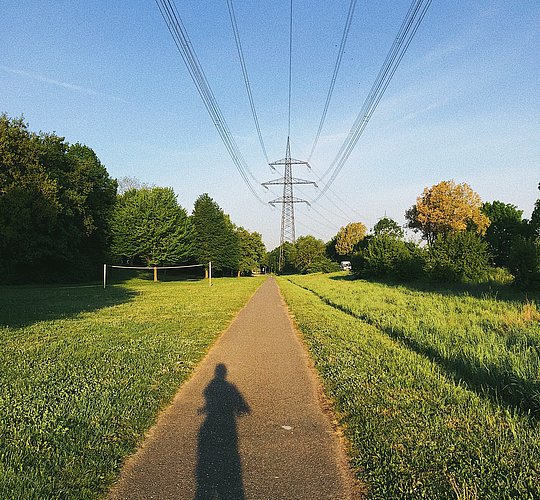
Sunshine
By Ngan:
If you ask Asian people (especially Vietnamese) about whether they enjoy sunshine or not, you will receive 99% NO! It does not exclude me. Honestly, I used to hate sunshine until suffering the crazy cold winter in Germany. I gradually realized how much love I have for sunshine here. Thoughts might change time by time and so do I. Now being in Germany I absolutely wish everyday is full of sunshine instead of windy, rainy or even snowy.
You may ask why Vietnamese people hate sunshine? Most people cover their face mask, sun glasses, sun hats, and wear jackets, long trousers or jeans, etc. There are some reasons around this situation, but basically we are scared of being burnt or brown skin. That ‘s why we have to cover our body as much as possible. Besides, Vietnam has tropical weather (the average head amplitude is from 25 to 33ºC), and it is really humid during the year. Furthermore, Vietnam is one of the typical motorbikes/ scooters country, so driving under sunshine is a very big challenge for us without covering long clothes (because it is super hot with the heat from sun and the reflection from roads) 🥵. And absolutely we have no sunbathing culture in Vietnam and we prefer to be in houses with air conditions. When coming to Vietnam, do not be surprised about our “covered culture” during hot days! ☀️
However, it seems totally different from the Western culture such as Germany. People love sunshine very much and so do I. At first, I asked myself how people in here are down for sunbathing directly from sunshine, and also with short clothes! And now I can fulfill my curiosity because of my experiences during the first summer in Germany and my suffering from the crazy cold winter. In summer, I wore long jeans on a hot summer day and omg help me! And during 3 more months of winter here, I definitely wished to see sunshine at the beginning of the day and also make me warm when I was outside. I realize how important sunshine is to me. I wish everyday is a nice sunny day and I can go picnic in Schloss Garden or enjoy my positivity from sunshine. It makes me warm and more energetic, so I have to say sunshine has changed me during these days. And of course, I love being under sunshine and enjoy my picnic food, and also wear short clothes to 100% feel sunshine!
My simple cultural difference between Vietnam and Germany may reflect the various views of sunshine. This fact interests me a lot when I have fulfilled my curiosity about this situation. And now spring spirit is coming to town and I definitely enjoy my good vibe with sunshine here!
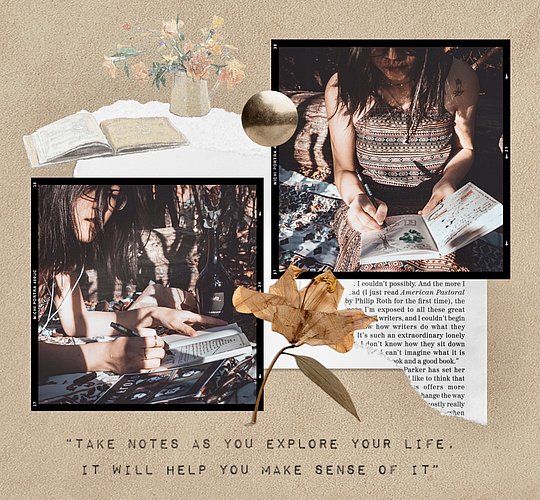
Journaling for self-care
By Phoung
I want to arrange my thoughts, I note all the messy thoughts down. I want to express my melancholy without bothering anyone, I cry out to my journal. I want to get away from mundane present, I write about the future fantasy. It occurs to me that I only write diary when I feel confused, uncertain, sad and disconnected from life.
In this lockdown, I journal more than ever before. It is not just because there are so many uncertainties and worries in this period of time that I want to express but because I have learned to journal in a different way. I joined a few courses about writing for self-care on "Skillshare" and I realized there are more things I could do with my journal than just writing down my messy thoughts and melancholic stories.
Now, I learn to write to reflect on myself. I write about what brings me joy, I write about all the interactions in my life that make me who I have become, I write about what I am grateful for, I write about my strengths, my weaknesses...I also learn to write to remember my life. I write how joyful and blessed I were when I found a wonderful shelter built by someone in the woods, how the sky was not as blue as the day before, how good I felt when one day I randomly woke up early with full energy. I looked at a tree and I drew it. I picked a leaf, painted on it and imprinted it on my journal. I do 4-quadrant exercise where I write what I did, what I saw, what I heard in a day and then I sketch my day in the last square of the 4 quadrants. For example, I wrote 'made a vegan taco' in the 'I did' quadrant, then I had a quick sketch of it in the 'Doodle' square. I want to remember it all, every detail.
So, instead of waiting for this difficult time to pass, I learn to appreciate every moment and I have my journal to keep all these beautiful little things. There is one quote from the TV series "Anne with an E" that I really like: 'Take notes as you explore your life. It’ll help you make sense of it.'
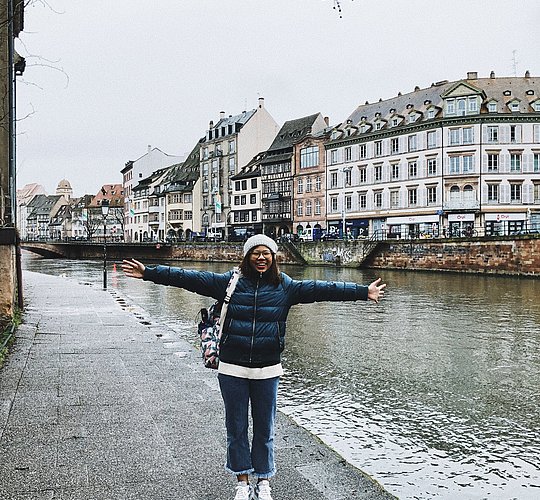
Cầm chiếc hộ chiếu xanh, băng dọc năm châu!
Từ nhỏ tôi may mắn được bố mẹ dẫn đi làm hộ chiếu, khái niệm hai từ đó đối với bản thân tôi thật xa lạ trong cái thế giới tuổi thơ của những năm đầu thập niên 2000. Mãi đến sau này, tôi mới nhận ra được sức mạnh tiềm tàng từ cuốn hộ chiếu đó. Không chỉ là một cuốn sổ bìa màu xanh, mà nó còn là cánh cửa đưa bản thân tôi chinh phục ước mơ trở thành một công dân toàn cầu!
Nếu tôi cần đi đâu ra ngoài lãnh thổ Việt Nam, hộ chiếu dường như là thứ không thể tách rời với chính mình. Tôi nhớ mãi câu nói của mẹ khi hỏi rằng tại sao mình cần gia hạn hộ chiếu: “Làm hộ chiếu sẵn, lỡ có đi đâu ra nước ngoài gấp thì có để đi, chứ đợi nước tới chân mới nhảy thì ai đỡ cho kịp”. Để rồi tôi tìm được câu trả lời có chiều sâu hơn khi thực hiện chuyến đi Cambodia đầu năm 2019, nói tuần trước mà tuần sau thì đi liền. Thế mới thấy, tôi nhận ra được sự quyền lực từ cuốn hộ chiếu đó, đơn giản thích thì “nhích”. Chuyến đi đó mở ra cho tôi biết bao góc nhìn mới về cuộc sống của nước bạn, cũng như kích thích sự tò mò về con người của thế giới. Tôi cảm nhận sự rung động của tâm khảm bảo rằng: “Mình cần đi để hiểu về môi trường đa sắc màu và mang văn hóa của nước Việt ra thế giới”.
Năm 2019, tôi học năm nhất đại học ở Việt Nam, một câu hỏi từ người cô khiến bản thân nhớ mãi: “Trong lớp mình có bao nhiêu bạn đã có hộ chiếu?”. Lác đác vài cánh tay trong tổng số 18 người, và tôi nằm trong số đó. Rồi cô tiếp tục: “Bạn nào không có thì mau đi làm ngay. Bởi vì hộ chiếu là cánh cửa đưa các bạn đến với thế giới. Không cần đi đâu xa xôi khi chưa đủ kinh phí, các bạn có thể đi ngang dọc Đông Nam Á mà không lo ngại visa. Đi để các bạn biết được nước mình đang ở đâu trong khu vực!”. Câu nói đó khiến bản thân tôi suy ngẫm về những rào cản của con người trong một thế giới của sự kết nối được phát triển mạnh mẽ hơn bao giờ hết. 20 tuổi, tôi đặt chân đến trời Âu - nơi tôi đã và đang thực hiện ước mơ của chính mình. Có kết bạn, có trò chuyện, tôi mới thấy được nhiều hơn về thế giới quan của con người năm châu. Một đứa bạn Ý từng bảo tôi rằng: “Sao mày dám đi một mình qua một đất nước xa lạ, không quen biết ai cũng như gặp rào cản về ngôn ngữ nữa. Đến bây giờ sắp tốt nghiệp rồi nhưng tao vẫn chưa có hộ chiếu! Mà thật ra do tao là người EU nên khỏi cần làm hộ chiếu để làm gì! Đi trong EU đối với tao là mãn nguyện lắm rồi!”. Thế đấy, nếu bạn trong hoàn cảnh của tôi lúc đó, bạn sẽ nghĩ gì?
Ngoài mục đích đi du lịch nước ngoài, cá nhân tôi nhìn thấy nhiều tiềm năng từ việc có hộ chiếu để chinh phục những vùng đất mới (ví dụ như cơ hội đi học trao đổi, tham dự hội nghị, đi thi ở nước ngoài, đi du học v.v). Nếu bạn từng thử tìm hiểu, hãy nhìn xem một trong những yêu cầu thiết yếu nhất là “có hộ chiếu còn hạn ít nhất 6 tháng”. Có phải đó là bước đầu tiên cho chính bạn dấn thân thân vào hành trình trở thành “công dân thế giới” hay không? Thế đấy, những người trẻ có cơ hội đã và đang chinh phục cuốn hộ chiếu nước Việt, không chỉ là những con dấu xuất nhập cảnh, mà nó còn mang theo cả ước mơ lẫn hoài bão của con người đất Việt sải cánh khắp năm châu.
Tôi bất giác hỏi chính mình rằng, liệu có phải càng đi xa, tôi càng nhận ra thế giới rộng lớn hơn bao giờ hết. Vì đâu đó, tôi tìm được những lời giải đáp cho những định kiến hay quan niệm của bản thân mình. Tôi nhìn thấy những con người nước Việt đã và đang cầm cuốn hộ chiếu xanh đặt dấu chân lên nhiều quốc gia khác nhau cũng như nắm bắt cơ hội cho bản thân để ghi tên mình vào bản đồ thế giới. Ngày nay, số lượng người Việt Nam (đặc biệt thế hệ trẻ) sở hữu trong mình cuốn hộ chiếu xanh ngày càng tăng nhanh hơn. Là một cá thể sống đầy nhiệt huyết và khát khao chinh phục thế giới (không chỉ là những cảnh quan thiên nhiên, mà còn là sự tò mò của bản thân hiểu rõ hơn về văn hóa năm châu), tôi tìm cho chính mình những cơ hội. Nhưng bước đệm cho hành trình đó là việc sở hữu cuốn hộ chiếu - cánh cửa “ngang dọc” chạm vào toàn cầu.
Cụm từ “hộ chiếu” dường như trở nên quen thuộc với chúng ta ở thời đại kết nối này. Hơn bao giờ hết, tôi cảm nhận được sức mạnh thiêng liêng của nó ẩn mình cho các bạn trẻ khát khao bước vào thế giới và mang tầm vóc Việt Nam đến với năm châu. Dù ở bất kỳ hành trình nào, tôi tin rằng chúng ta đều có một cánh cửa cho từng trang giấy cuộc đời, nhưng đối với tôi cánh cửa đã mở ra một chân trời rộng lớn của thế giới đa văn hóa được cất gọi tên “hộ chiếu xanh”.
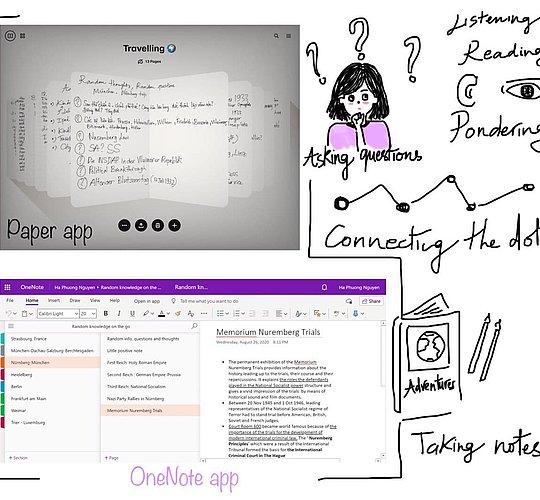
My first summer break in Germany and the journey to German history
Here I am in the second lockdown recalling historical places I’ve been to in my first summer vacation in Germany. It was Nürnberg where the imperial castle of Holy Roman Empire based. It was Berlin – the capital of the kingdom of Prussia and later on of German Empire. It was München where Hitler began his political careers, where the Beer Hall Putsch took place and failed. It was Nürnberg where the National Socialists staged their vast marching procession. It was Berlin where Hitler committed suicide. It was Nürnberg again where the Nuremberg Trials were held after world war II for the prosecution of prominent members of Nazi Germany. Then, It was Berlin where the Berlin Wall was erected. And now, It is Berlin, the capital of united Germany.
Honestly speaking, I really appreciate the way how Germany deals with its past : many historical museums and Memorial Sites are free to public; things that are small but meaningful like ‚Stolpersteine‘ which are stumbling stones inscribed with the names of the Nazis‘ victims, they are placed in front of the houses from where the victims have been deported; Students are taken on school tours to museums and Places of Remembrance as part of their curricular activities. On my way to Sachsenhausen Concentration Camp Memorial Site, I was so impressed to notice that Brandenburg University of Applied Police Sciences is located on the ground of the former SS camp. There I saw the sign which says the main educational objective of the University is commitment to the primary principle of the basic law: Human dignity shall be inviolable. During their studies, students learn about the history of what happened there and the crimes committed by the police under the National Socialist regime.
For me, travelling to a place is the chance to learn and understand about its culture and history. Reflecting upon this thrilling journey, I feel like I somehow indeed got on the time machine and traced back to many different milestones in German history. Of course, what I have learnt so far about it, is just a small portion in the vast sea of knowledge. However, isn‘t it true what matters at the end of the day is that you learn and understand more than you did the day before? To me, it is such an enlightened state of mind when understanding the things that I just vaguely knew before and then being able to connect them all together. And since there are many things to learn and memorize along the way, I always carry with myself my travelling notebook. I simply put things down in the shortest words, then organise and dig down into them later when being back home. Since I got all the notes and the questions down, the learning journey continues after every trip. First, I have a look at what I have written and arrange those areas of knowledge in different historical phases chronologically. I then search for more information and write down one more time as a way to remember and understand deeply. So far, I find this method of learning when travelling really works for me and I just hope the pandemic will be over really soon so that I could hit the road again and embrace my knowledge!

Sunshine
By Ngan:
If you ask Asian people (especially Vietnamese) about whether they enjoy sunshine or not, you will receive 99% NO! It does not exclude me. Honestly, I used to hate sunshine until suffering the crazy cold winter in Germany. I gradually realized how much love I have for sunshine here. Thoughts might change time by time and so do I. Now being in Germany I absolutely wish everyday is full of sunshine instead of windy, rainy or even snowy.
You may ask why Vietnamese people hate sunshine? Most people cover their face mask, sun glasses, sun hats, and wear jackets, long trousers or jeans, etc. There are some reasons around this situation, but basically we are scared of being burnt or brown skin. That ‘s why we have to cover our body as much as possible. Besides, Vietnam has tropical weather (the average head amplitude is from 25 to 33ºC), and it is really humid during the year. Furthermore, Vietnam is one of the typical motorbikes/ scooters country, so driving under sunshine is a very big challenge for us without covering long clothes (because it is super hot with the heat from sun and the reflection from roads) 🥵. And absolutely we have no sunbathing culture in Vietnam and we prefer to be in houses with air conditions. When coming to Vietnam, do not be surprised about our “covered culture” during hot days! ☀️
However, it seems totally different from the Western culture such as Germany. People love sunshine very much and so do I. At first, I asked myself how people in here are down for sunbathing directly from sunshine, and also with short clothes! And now I can fulfill my curiosity because of my experiences during the first summer in Germany and my suffering from the crazy cold winter. In summer, I wore long jeans on a hot summer day and omg help me! And during 3 more months of winter here, I definitely wished to see sunshine at the beginning of the day and also make me warm when I was outside. I realize how important sunshine is to me. I wish everyday is a nice sunny day and I can go picnic in Schloss Garden or enjoy my positivity from sunshine. It makes me warm and more energetic, so I have to say sunshine has changed me during these days. And of course, I love being under sunshine and enjoy my picnic food, and also wear short clothes to 100% feel sunshine!
My simple cultural difference between Vietnam and Germany may reflect the various views of sunshine. This fact interests me a lot when I have fulfilled my curiosity about this situation. And now spring spirit is coming to town and I definitely enjoy my good vibe with sunshine here!

Journaling for self-care
By Phoung
I want to arrange my thoughts, I note all the messy thoughts down. I want to express my melancholy without bothering anyone, I cry out to my journal. I want to get away from mundane present, I write about the future fantasy. It occurs to me that I only write diary when I feel confused, uncertain, sad and disconnected from life.
In this lockdown, I journal more than ever before. It is not just because there are so many uncertainties and worries in this period of time that I want to express but because I have learned to journal in a different way. I joined a few courses about writing for self-care on "Skillshare" and I realized there are more things I could do with my journal than just writing down my messy thoughts and melancholic stories.
Now, I learn to write to reflect on myself. I write about what brings me joy, I write about all the interactions in my life that make me who I have become, I write about what I am grateful for, I write about my strengths, my weaknesses...I also learn to write to remember my life. I write how joyful and blessed I were when I found a wonderful shelter built by someone in the woods, how the sky was not as blue as the day before, how good I felt when one day I randomly woke up early with full energy. I looked at a tree and I drew it. I picked a leaf, painted on it and imprinted it on my journal. I do 4-quadrant exercise where I write what I did, what I saw, what I heard in a day and then I sketch my day in the last square of the 4 quadrants. For example, I wrote 'made a vegan taco' in the 'I did' quadrant, then I had a quick sketch of it in the 'Doodle' square. I want to remember it all, every detail.
So, instead of waiting for this difficult time to pass, I learn to appreciate every moment and I have my journal to keep all these beautiful little things. There is one quote from the TV series "Anne with an E" that I really like: 'Take notes as you explore your life. It’ll help you make sense of it.'

Cầm chiếc hộ chiếu xanh, băng dọc năm châu!
Từ nhỏ tôi may mắn được bố mẹ dẫn đi làm hộ chiếu, khái niệm hai từ đó đối với bản thân tôi thật xa lạ trong cái thế giới tuổi thơ của những năm đầu thập niên 2000. Mãi đến sau này, tôi mới nhận ra được sức mạnh tiềm tàng từ cuốn hộ chiếu đó. Không chỉ là một cuốn sổ bìa màu xanh, mà nó còn là cánh cửa đưa bản thân tôi chinh phục ước mơ trở thành một công dân toàn cầu!
Nếu tôi cần đi đâu ra ngoài lãnh thổ Việt Nam, hộ chiếu dường như là thứ không thể tách rời với chính mình. Tôi nhớ mãi câu nói của mẹ khi hỏi rằng tại sao mình cần gia hạn hộ chiếu: “Làm hộ chiếu sẵn, lỡ có đi đâu ra nước ngoài gấp thì có để đi, chứ đợi nước tới chân mới nhảy thì ai đỡ cho kịp”. Để rồi tôi tìm được câu trả lời có chiều sâu hơn khi thực hiện chuyến đi Cambodia đầu năm 2019, nói tuần trước mà tuần sau thì đi liền. Thế mới thấy, tôi nhận ra được sự quyền lực từ cuốn hộ chiếu đó, đơn giản thích thì “nhích”. Chuyến đi đó mở ra cho tôi biết bao góc nhìn mới về cuộc sống của nước bạn, cũng như kích thích sự tò mò về con người của thế giới. Tôi cảm nhận sự rung động của tâm khảm bảo rằng: “Mình cần đi để hiểu về môi trường đa sắc màu và mang văn hóa của nước Việt ra thế giới”.
Năm 2019, tôi học năm nhất đại học ở Việt Nam, một câu hỏi từ người cô khiến bản thân nhớ mãi: “Trong lớp mình có bao nhiêu bạn đã có hộ chiếu?”. Lác đác vài cánh tay trong tổng số 18 người, và tôi nằm trong số đó. Rồi cô tiếp tục: “Bạn nào không có thì mau đi làm ngay. Bởi vì hộ chiếu là cánh cửa đưa các bạn đến với thế giới. Không cần đi đâu xa xôi khi chưa đủ kinh phí, các bạn có thể đi ngang dọc Đông Nam Á mà không lo ngại visa. Đi để các bạn biết được nước mình đang ở đâu trong khu vực!”. Câu nói đó khiến bản thân tôi suy ngẫm về những rào cản của con người trong một thế giới của sự kết nối được phát triển mạnh mẽ hơn bao giờ hết. 20 tuổi, tôi đặt chân đến trời Âu - nơi tôi đã và đang thực hiện ước mơ của chính mình. Có kết bạn, có trò chuyện, tôi mới thấy được nhiều hơn về thế giới quan của con người năm châu. Một đứa bạn Ý từng bảo tôi rằng: “Sao mày dám đi một mình qua một đất nước xa lạ, không quen biết ai cũng như gặp rào cản về ngôn ngữ nữa. Đến bây giờ sắp tốt nghiệp rồi nhưng tao vẫn chưa có hộ chiếu! Mà thật ra do tao là người EU nên khỏi cần làm hộ chiếu để làm gì! Đi trong EU đối với tao là mãn nguyện lắm rồi!”. Thế đấy, nếu bạn trong hoàn cảnh của tôi lúc đó, bạn sẽ nghĩ gì?
Ngoài mục đích đi du lịch nước ngoài, cá nhân tôi nhìn thấy nhiều tiềm năng từ việc có hộ chiếu để chinh phục những vùng đất mới (ví dụ như cơ hội đi học trao đổi, tham dự hội nghị, đi thi ở nước ngoài, đi du học v.v). Nếu bạn từng thử tìm hiểu, hãy nhìn xem một trong những yêu cầu thiết yếu nhất là “có hộ chiếu còn hạn ít nhất 6 tháng”. Có phải đó là bước đầu tiên cho chính bạn dấn thân thân vào hành trình trở thành “công dân thế giới” hay không? Thế đấy, những người trẻ có cơ hội đã và đang chinh phục cuốn hộ chiếu nước Việt, không chỉ là những con dấu xuất nhập cảnh, mà nó còn mang theo cả ước mơ lẫn hoài bão của con người đất Việt sải cánh khắp năm châu.
Tôi bất giác hỏi chính mình rằng, liệu có phải càng đi xa, tôi càng nhận ra thế giới rộng lớn hơn bao giờ hết. Vì đâu đó, tôi tìm được những lời giải đáp cho những định kiến hay quan niệm của bản thân mình. Tôi nhìn thấy những con người nước Việt đã và đang cầm cuốn hộ chiếu xanh đặt dấu chân lên nhiều quốc gia khác nhau cũng như nắm bắt cơ hội cho bản thân để ghi tên mình vào bản đồ thế giới. Ngày nay, số lượng người Việt Nam (đặc biệt thế hệ trẻ) sở hữu trong mình cuốn hộ chiếu xanh ngày càng tăng nhanh hơn. Là một cá thể sống đầy nhiệt huyết và khát khao chinh phục thế giới (không chỉ là những cảnh quan thiên nhiên, mà còn là sự tò mò của bản thân hiểu rõ hơn về văn hóa năm châu), tôi tìm cho chính mình những cơ hội. Nhưng bước đệm cho hành trình đó là việc sở hữu cuốn hộ chiếu - cánh cửa “ngang dọc” chạm vào toàn cầu.
Cụm từ “hộ chiếu” dường như trở nên quen thuộc với chúng ta ở thời đại kết nối này. Hơn bao giờ hết, tôi cảm nhận được sức mạnh thiêng liêng của nó ẩn mình cho các bạn trẻ khát khao bước vào thế giới và mang tầm vóc Việt Nam đến với năm châu. Dù ở bất kỳ hành trình nào, tôi tin rằng chúng ta đều có một cánh cửa cho từng trang giấy cuộc đời, nhưng đối với tôi cánh cửa đã mở ra một chân trời rộng lớn của thế giới đa văn hóa được cất gọi tên “hộ chiếu xanh”.

My first summer break in Germany and the journey to German history
Here I am in the second lockdown recalling historical places I’ve been to in my first summer vacation in Germany. It was Nürnberg where the imperial castle of Holy Roman Empire based. It was Berlin – the capital of the kingdom of Prussia and later on of German Empire. It was München where Hitler began his political careers, where the Beer Hall Putsch took place and failed. It was Nürnberg where the National Socialists staged their vast marching procession. It was Berlin where Hitler committed suicide. It was Nürnberg again where the Nuremberg Trials were held after world war II for the prosecution of prominent members of Nazi Germany. Then, It was Berlin where the Berlin Wall was erected. And now, It is Berlin, the capital of united Germany.
Honestly speaking, I really appreciate the way how Germany deals with its past : many historical museums and Memorial Sites are free to public; things that are small but meaningful like ‚Stolpersteine‘ which are stumbling stones inscribed with the names of the Nazis‘ victims, they are placed in front of the houses from where the victims have been deported; Students are taken on school tours to museums and Places of Remembrance as part of their curricular activities. On my way to Sachsenhausen Concentration Camp Memorial Site, I was so impressed to notice that Brandenburg University of Applied Police Sciences is located on the ground of the former SS camp. There I saw the sign which says the main educational objective of the University is commitment to the primary principle of the basic law: Human dignity shall be inviolable. During their studies, students learn about the history of what happened there and the crimes committed by the police under the National Socialist regime.
For me, travelling to a place is the chance to learn and understand about its culture and history. Reflecting upon this thrilling journey, I feel like I somehow indeed got on the time machine and traced back to many different milestones in German history. Of course, what I have learnt so far about it, is just a small portion in the vast sea of knowledge. However, isn‘t it true what matters at the end of the day is that you learn and understand more than you did the day before? To me, it is such an enlightened state of mind when understanding the things that I just vaguely knew before and then being able to connect them all together. And since there are many things to learn and memorize along the way, I always carry with myself my travelling notebook. I simply put things down in the shortest words, then organise and dig down into them later when being back home. Since I got all the notes and the questions down, the learning journey continues after every trip. First, I have a look at what I have written and arrange those areas of knowledge in different historical phases chronologically. I then search for more information and write down one more time as a way to remember and understand deeply. So far, I find this method of learning when travelling really works for me and I just hope the pandemic will be over really soon so that I could hit the road again and embrace my knowledge!

Sunshine
By Ngan:
If you ask Asian people (especially Vietnamese) about whether they enjoy sunshine or not, you will receive 99% NO! It does not exclude me. Honestly, I used to hate sunshine until suffering the crazy cold winter in Germany. I gradually realized how much love I have for sunshine here. Thoughts might change time by time and so do I. Now being in Germany I absolutely wish everyday is full of sunshine instead of windy, rainy or even snowy.
You may ask why Vietnamese people hate sunshine? Most people cover their face mask, sun glasses, sun hats, and wear jackets, long trousers or jeans, etc. There are some reasons around this situation, but basically we are scared of being burnt or brown skin. That ‘s why we have to cover our body as much as possible. Besides, Vietnam has tropical weather (the average head amplitude is from 25 to 33ºC), and it is really humid during the year. Furthermore, Vietnam is one of the typical motorbikes/ scooters country, so driving under sunshine is a very big challenge for us without covering long clothes (because it is super hot with the heat from sun and the reflection from roads) 🥵. And absolutely we have no sunbathing culture in Vietnam and we prefer to be in houses with air conditions. When coming to Vietnam, do not be surprised about our “covered culture” during hot days! ☀️
However, it seems totally different from the Western culture such as Germany. People love sunshine very much and so do I. At first, I asked myself how people in here are down for sunbathing directly from sunshine, and also with short clothes! And now I can fulfill my curiosity because of my experiences during the first summer in Germany and my suffering from the crazy cold winter. In summer, I wore long jeans on a hot summer day and omg help me! And during 3 more months of winter here, I definitely wished to see sunshine at the beginning of the day and also make me warm when I was outside. I realize how important sunshine is to me. I wish everyday is a nice sunny day and I can go picnic in Schloss Garden or enjoy my positivity from sunshine. It makes me warm and more energetic, so I have to say sunshine has changed me during these days. And of course, I love being under sunshine and enjoy my picnic food, and also wear short clothes to 100% feel sunshine!
My simple cultural difference between Vietnam and Germany may reflect the various views of sunshine. This fact interests me a lot when I have fulfilled my curiosity about this situation. And now spring spirit is coming to town and I definitely enjoy my good vibe with sunshine here!

My first summer break in Germany and the journey to German history
Here I am in the second lockdown recalling historical places I’ve been to in my first summer vacation in Germany. It was Nürnberg where the imperial castle of Holy Roman Empire based. It was Berlin – the capital of the kingdom of Prussia and later on of German Empire. It was München where Hitler began his political careers, where the Beer Hall Putsch took place and failed. It was Nürnberg where the National Socialists staged their vast marching procession. It was Berlin where Hitler committed suicide. It was Nürnberg again where the Nuremberg Trials were held after world war II for the prosecution of prominent members of Nazi Germany. Then, It was Berlin where the Berlin Wall was erected. And now, It is Berlin, the capital of united Germany.
Honestly speaking, I really appreciate the way how Germany deals with its past : many historical museums and Memorial Sites are free to public; things that are small but meaningful like ‚Stolpersteine‘ which are stumbling stones inscribed with the names of the Nazis‘ victims, they are placed in front of the houses from where the victims have been deported; Students are taken on school tours to museums and Places of Remembrance as part of their curricular activities. On my way to Sachsenhausen Concentration Camp Memorial Site, I was so impressed to notice that Brandenburg University of Applied Police Sciences is located on the ground of the former SS camp. There I saw the sign which says the main educational objective of the University is commitment to the primary principle of the basic law: Human dignity shall be inviolable. During their studies, students learn about the history of what happened there and the crimes committed by the police under the National Socialist regime.
For me, travelling to a place is the chance to learn and understand about its culture and history. Reflecting upon this thrilling journey, I feel like I somehow indeed got on the time machine and traced back to many different milestones in German history. Of course, what I have learnt so far about it, is just a small portion in the vast sea of knowledge. However, isn‘t it true what matters at the end of the day is that you learn and understand more than you did the day before? To me, it is such an enlightened state of mind when understanding the things that I just vaguely knew before and then being able to connect them all together. And since there are many things to learn and memorize along the way, I always carry with myself my travelling notebook. I simply put things down in the shortest words, then organise and dig down into them later when being back home. Since I got all the notes and the questions down, the learning journey continues after every trip. First, I have a look at what I have written and arrange those areas of knowledge in different historical phases chronologically. I then search for more information and write down one more time as a way to remember and understand deeply. So far, I find this method of learning when travelling really works for me and I just hope the pandemic will be over really soon so that I could hit the road again and embrace my knowledge!
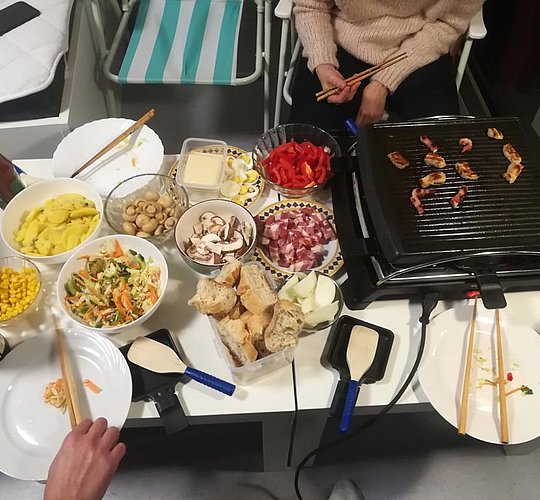
Chứng rạo rực mùa lễ hội!
Năm nay là lần thứ hai mình ăn Giáng sinh và đón giao thừa ở Đức. Và chỉ trong năm nay mình mới nhận ra 2 điều:
Đầu tiên, (mình nghĩ) đây là lần đầu tiên mình thực sự ăn mừng đêm giao thừa theo đúng cách (của người Đức). Chúng mình có một bữa tiệc nhỏ - chúng mình làm "Raclette" - là phô mai tan chảy ăn kèm với nhiều loại rau và thịt tùy chọn, uống "Sekt" - là rượu vang kèm nước có ga, chơi một số boardgame, xem "Dinner for One" và uống bất cứ khi nào người đàn ông nói "same procedure", và chúng tôi đã đi ra ngoài để xem (chơi!) pháo hoa. Ở Việt Nam, vào đêm giao thừa, có một hoặc hai điểm nhất định mà chính phủ sẽ bắn pháo hoa và người dân không được tự ý chơi pháo hoa - điều đó là bất hợp pháp. Vì vậy, việc tự mình bắn pháo hoa ở đây tại Đức cũng là một trong những việc được cho vào danh sách Những-lần-đầu-tiên của mình!
Thứ hai, vâng, chứng rạo rực mùa lễ hội! Mình thực sự đã không nhận thấy nó năm ngoái. Nhưng năm nay, mình hiểu những gì mọi người gọi là "Chứng động kinh mùa Giáng sinh" ahaha - Cảm giác không muốn làm gì ngoài việc chờ đợi Giáng sinh và kỳ nghỉ năm mới. Mình thực sự cảm nhận được nó! Và đối với mình, sự rạo rực mùa lễ hội này còn tệ hơn vậy. Là một người Việt Nam (và mình nghĩ nó có thể giống với bất kỳ sinh viên châu Á nào, mà ở đất nước đó vẫn ăn Tết Nguyên đán, sống và học tập ở một quốc gia khác), sự rạo rực mùa lễ hội còn kéo dài hơn thế ...
Năm nay, ngày đầu tiên trong năm âm lịch là ngày 25 tháng 1, và trong khi ở đây - Đức, mọi người bắt đầu làm việc trở lại, mọi thứ đều tươi mới và sẵn sàng, mọi người ở Việt Nam bắt đầu chuẩn bị cho Tết Nguyên đán. Và chỉ để cho bạn biết, Tết Nguyên đán đối với người Việt Nam giống như một sự kết hợp của Giáng sinh, Năm mới và Lễ Tạ ơn trong một vậy! Vậy người Việt Nam ăn mừng năm mới thế nào? Hãy đón chờ hai bài viết tiếp theo của mình trong tháng này!
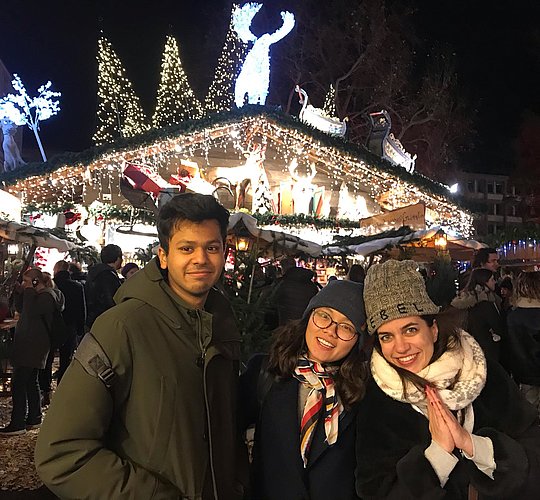
Chợ Giáng Sinh!
Giáng Sinh đã phủ đầy trong không khí rồi! Vậy là, đây là mùa Giáng sinh thứ hai của mình ở Đức. Ai đó nói là: Không ai đến rồi rời Đức mà không ghé thăm một trong những khu chợ Giáng sinh hết á. Chợ Giáng sinh Phong cách Đức là thứ bạn không nên bỏ qua. Điều gì đang chờ đợi bạn ở chợ Giáng sinh?
Thực phẩm và đồ uống, trái với mọi logic là chợ được tổ chức ngoài trời vào giữa mùa đông, lại là điểm thu hút của Chợ Giáng Sinh. Nó là hạt dẻ rang, xúc xích nóng và rượu Giáng Sinh nóng (Glühwein)
Các quầy chợ, nơi bày bán các mặt hàng thủ công, gốm sứ và các đồ chơi và đồ trang trí bằng gỗ, là nơi mình nghĩ bạn có thể tìm hiểu tốt nhất về văn hóa Đức.
Các dịch vụ giải trí, mình nghĩ thường khoảng 5 p.m, và không phải chợ Giáng sinh nào cũng có, có thể bao gồm các dàn hợp xướng hoặc các bài hát kèn trombone từ ban công nhìn ra khung cảnh.
Rất, rất, rất nhiều trẻ em (ý mình là rất nhiều quầy dành riêng cho trẻ em!) Đôi mắt của những đứa trẻ đầy phấn khích, má hồng anh đào phúng phính, mặc quần áo mùa đông,mắt chúng sáng lên khi nhìn thấy "kho tàng" đồ chơi trước mắt. Đồ chơi, đồ trang trí cây thông Noel và kẹo được xếp chồng lên nhau trong các hàng cây gỗ treo đầy cành cây và đèn thường xanh.
Và quan trọng hơn, chợ Giáng sinh cũng mở vào Chủ nhật, như, mỗi Chủ nhật trong tháng 12! (Đó là, tin tôi đi, thực sự là một vấn đề lớn ở Đức!)
P.s: Đây là Chợ giáng sinh ("Weihnachtsmarkt") ở Karlsruhe nơi mình sống và mình xin tự hào giới thiệu bộ "dụng cụ sinh tồn" của mình tại Đức - hai đứa bạn giúp mình "sống sót" qua khỏi mùa đông dài đằng đẵng này.
Mình rất xin lỗi nếu bài viết này nhàm chán. Mình đến từ một đất nước...không có chợ Giáng sinh. Tuy nhiên, tôi có thể thấy một mô hình tương tự về thời gian Giáng sinh và tiếng Việt của chúng tôi (Tết Nguyên đán) - mà tôi sẽ nói với bạn trong một bài khác sau nha!

My first summer break in Germany and the journey to German history
Here I am in the second lockdown recalling historical places I’ve been to in my first summer vacation in Germany. It was Nürnberg where the imperial castle of Holy Roman Empire based. It was Berlin – the capital of the kingdom of Prussia and later on of German Empire. It was München where Hitler began his political careers, where the Beer Hall Putsch took place and failed. It was Nürnberg where the National Socialists staged their vast marching procession. It was Berlin where Hitler committed suicide. It was Nürnberg again where the Nuremberg Trials were held after world war II for the prosecution of prominent members of Nazi Germany. Then, It was Berlin where the Berlin Wall was erected. And now, It is Berlin, the capital of united Germany.
Honestly speaking, I really appreciate the way how Germany deals with its past : many historical museums and Memorial Sites are free to public; things that are small but meaningful like ‚Stolpersteine‘ which are stumbling stones inscribed with the names of the Nazis‘ victims, they are placed in front of the houses from where the victims have been deported; Students are taken on school tours to museums and Places of Remembrance as part of their curricular activities. On my way to Sachsenhausen Concentration Camp Memorial Site, I was so impressed to notice that Brandenburg University of Applied Police Sciences is located on the ground of the former SS camp. There I saw the sign which says the main educational objective of the University is commitment to the primary principle of the basic law: Human dignity shall be inviolable. During their studies, students learn about the history of what happened there and the crimes committed by the police under the National Socialist regime.
For me, travelling to a place is the chance to learn and understand about its culture and history. Reflecting upon this thrilling journey, I feel like I somehow indeed got on the time machine and traced back to many different milestones in German history. Of course, what I have learnt so far about it, is just a small portion in the vast sea of knowledge. However, isn‘t it true what matters at the end of the day is that you learn and understand more than you did the day before? To me, it is such an enlightened state of mind when understanding the things that I just vaguely knew before and then being able to connect them all together. And since there are many things to learn and memorize along the way, I always carry with myself my travelling notebook. I simply put things down in the shortest words, then organise and dig down into them later when being back home. Since I got all the notes and the questions down, the learning journey continues after every trip. First, I have a look at what I have written and arrange those areas of knowledge in different historical phases chronologically. I then search for more information and write down one more time as a way to remember and understand deeply. So far, I find this method of learning when travelling really works for me and I just hope the pandemic will be over really soon so that I could hit the road again and embrace my knowledge!
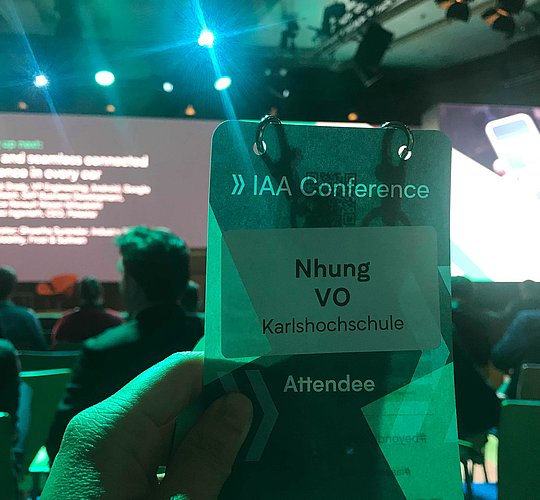
Criticize the Criticism.
(Xin lỗi vì bài đăng #throwback khác)
Một trong những điều tốt khi trở thành sinh viên ở Đức (và ở Karlshochschule) là, bạn có cơ hội tham dự rất nhiều sự kiện / buổi hòa nhạc / hội nghị hội nghị một cách dễ dàng (và đôi khi miễn phí). Tháng trước, tôi có cơ hội tham gia IAA 2019.
Thành thật mà nói, tôi không tham gia vào ngành công nghiệp ô tô (Việt Nam là một quốc gia xe tay ga, bạn biết đấy, thậm chí còn tệ hơn nữa). Cá nhân tôi chỉ bị thu hút bởi Trí tuệ nhân tạo trong khi thực hiện nghiên cứu cho một trong các mô-đun Master của mình, đặc biệt là cách AI có thể hỗ trợ trong việc tìm kiếm một giải pháp di động tốt hơn cho các khu vực đô thị và quốc tế. Bên cạnh đó, đến từ một nền kinh tế chia sẻ đang phát triển cực kỳ nhanh chóng qua trung gian SaaS nhưng cũng phải đối mặt với các vấn đề đô thị hóa nhanh như kẹt xe, tôi cũng tò mò về một số cuộc thảo luận tại IAA. Có phải MaaS là tương lai mới? và làm thế nào để biết một thành phố đã sẵn sàng cho điều đó (và nếu không, phải làm gì để làm cho nó sẵn sàng)?
Nhưng đó không phải là điều tôi nhớ nhất với IAA. Đó là, khi Văn phòng quốc tế gửi email vé miễn phí. Ngay lập tức, một sinh viên đã trả lời email đó cho toàn bộ trường đại học như một phản hồi trực tiếp với IAA, một liên minh rộng lớn của các tổ chức xã hội dân sự tổ chức nhiều cuộc biểu tình, phản đối và diễn đàn để thảo luận đang bị chỉ trích rất nhiều ở đây tại Đức)
Vì vậy, tôi biết, ít nhất là tại Karls (Tôi không phải là người Đức, tôi chỉ sống ở đây tại Karlsruhe và chỉ học ở đây tại Karlshochschule), tôi cảm thấy an toàn và tôi biết việc phê bình mọi thứ là ổn. Và thậm chí nó cũng ổn để phê bình những lời chỉ trích.
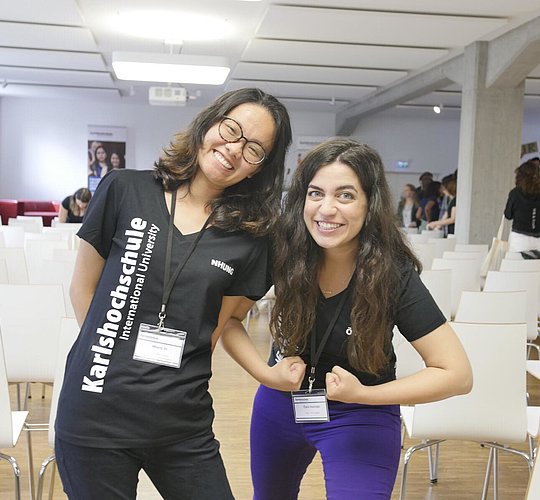
Be a Tutor!
#Throwback
Wow, tôi đã ở Karlshochschule được một năm rồi! MỘT NĂM!
Nhớ lại tuần đầu tiên ở đây tại Karlshochschule - tuần định hướng! Mọi thứ đều mới mẻ, mọi người đều xa lạ. Vào thời điểm đó, chúng tôi đã tham gia tuần định hướng với tư cách là sinh viên Pre-Master - chỉ có 3 chúng tôi. Gia sư của chúng tôi hồi đó đã giúp chúng tôi rất nhiều trong những ngày thậm chí kiên nhẫn trả lời những câu hỏi giả giả Newbie của chúng tôi. (Và thật trùng hợp, tôi rất là Nachmieterin của một trong những gia sư của tôi, chúng tôi thậm chí đã nói chuyện trước khi tôi thực sự đến Karlsruhe mà không biết điều đó!). Đó là lý do tại sao, mặc dù tôi không thực sự là một người hướng ngoại, tôi vẫn đăng ký làm Gia sư trong học kỳ mới này. Và tôi nghĩ rằng tôi đã quyết định đúng đắn để trả nó về phía trước.
Làm gia sư cho Pre-Master mới tham gia năm nay, thấy họ đến từ các quốc gia và nền tảng khác nhau (Luật, Khoa học chính trị) làm việc cùng nhau theo các dự án tiếp thị và quản lý bắt buộc, giúp họ bằng cách nào đó với bất kỳ câu hỏi nào bằng cách nào đó Vì tôi biết nó sẽ như thế nào, những gì họ cần phải vượt qua với nhóm hoạt động đa dạng như vậy, tôi cũng biết sau đó chúng tôi biết ơn như thế nào - rằng chúng tôi đã chiến đấu với nhau và hiểu thêm về bản thân và sự khác biệt của chúng tôi. Bạn có tin không? Làm gia sư vào năm tới
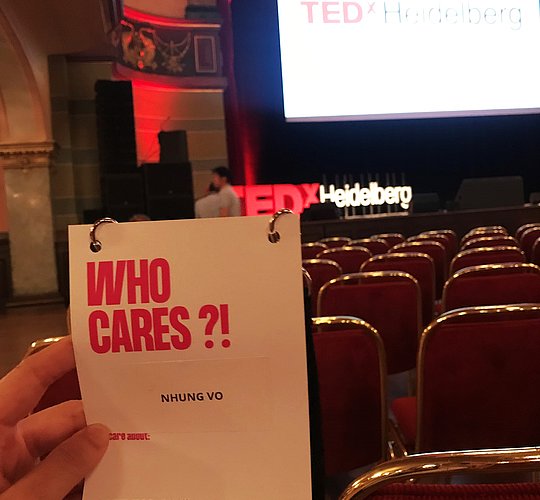
TEDxHeidelberg - "Who cares?"
Cuối tuần rồi, mình có đi nghe diễn đàn TEDxHeidelberg lần thứ 4 (thành phố bé nhỏ xinh đẹp Heidelberg này mình sẽ nói trong một post khác :) ). Chủ đề chính lần này là "Who cares" - thực ra nó có nghĩa là "Bạn có quan tâm không, và quan tâm điều gì?". Thế giới hiện đại đang thay đổi nhanh hơn bao giờ hết và các công ty, cộng đồng xã hội và các các thể chế chính trị cũng đang phải đối mặt với những vấn đề đến từ một thế giới đang ngày càng phức tạp hơn - từ các vấn đề về môi trường, dịch bệnh có khả năng lây lan toàn cầu (như Ebola chẳng hạn) hoặc hiệu quả của việc điều trị các bệnh (nó có thực sự hiệu quả không?), sự đa dạng văn hóa đi kèm với các làn sóng nhập cư ngày càng mạnh mẽ... Lớp này đến lớp khác, các "buzzwords" cứ xuất hiện trong hầu hết các cuộc hội đàm toàn cầu, và thực sự rất khó để nhận ra được đâu là những vấn đề thực sự mang tính thời cuộc và đâu là chỉ là những vấn đề nhất thời! Vấn đề nào thì chúng ta nên ưu tiên giải quyết đầu tiên? Cơ hội nào nên được ưu tiên?
Chúng ta cần nhận thức rằng, mỗi người - vì khác nhau về bối cảnh, xuất thân, văn khóa, quốc gia, giới tính... - sẽ quan tâm đến những vấn đề hoàn toàn khác nhau. Và thậm chí, nhiều người còn đang khó khăn trong việc xác định đâu ra vấn đề quan trọng nhất trong đời họ - Nó không chỉ đơn giản là câu hỏi "Bạn quan tâm về vấn đề gia?" mà còn là biết tôn trọng "điều những người khác quan tâm là gì?"
P.S: Với những bạn sắp đi du học tại Đức - trung tâm của châu Âu - hãy cố gắng là không chỉ trao dồi kiến thức từ trường Đại học và kinh nghiệm sống dồi dào mà hãy cố gắng tham gia và để bản thân mình được lắp đầy với những sự kiện và kiến thức khác (và dĩ nhiên là với những giảm giá đặc biệt giành cho sinh viên ahihi)
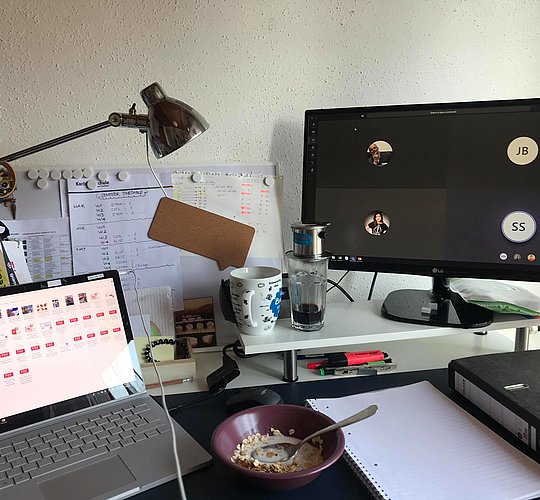
Online Classes!
So this is the first week that The Karls "goes online". How are your experiences? To me, I did see how much effort that the University has put and prepared for this online scenario. The good thing is that we are not necessarily delayed the classes. Even with some modules, there are changes need to be adjusted but in general, we can still keep up with the learning pace. However, besides technical issues related, for me, the realtime-direct-interaction and discussion, which a.k.a the unique of the Karls, is something that cannot be transferred online 100% and I really miss it.
In such an extraordinary situation, I think the most important thing to keep in mind is to be empathetic. Normal learning settings/environments would encourage or endorse some typical types of characters (for example: introvert vs. extrovert). This online (and inside) situation is also the same. Some are techie, some are not (disregard how young you are!); some can cope with the change fast, some slow; some can speak during class but cannot really say anything during online class, some need to "see" and "feel" to discuss, not to only "listen" and "speak".
Be patient, be empathetic. Maybe you can discover your classmates' special ability - to productively work and study during this situation ;)
Stay healthy and stay safe (and stay inside ;) )
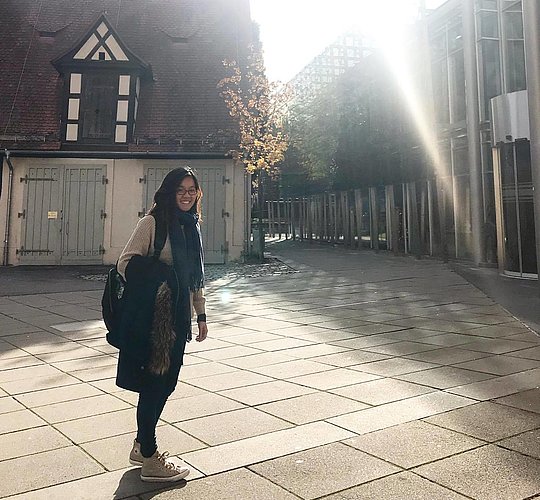
A new Semester begins!
So, we are back to school and I just finished the first week of the new Semester. in this third Master Semester, we are already considered "Senior" now since the "New generation" has already been here.
At this first week, we - "the senior" ones - have the chance to meet and greet all of them - "the fresh" ones. We are halfway through on our journeys and they just start. Meeting them reminded me a lots about me in the very first weeks being here at Karlshochschule.
It is interesting to see those, who actually just like us a year ago - many coming from different corners of this globe and now starting their whole new journey here in Germany. They will have 2 years in their life to live and experience in another country, to learn how to adapt in a whole new "concept" ("Re-design" life is also a way of saying) with a different language, different culture with different norms and rules in general - and in more specific, without the comfort zone with friends and relatives. There would be ups and downs that you have to face completely individually. That is challenging but exciting (and even a bit scary) at the same time. It's too soon to say anything - I just want to wish you a good journey, come with who you really are and absorb as much as you can (but collectively).
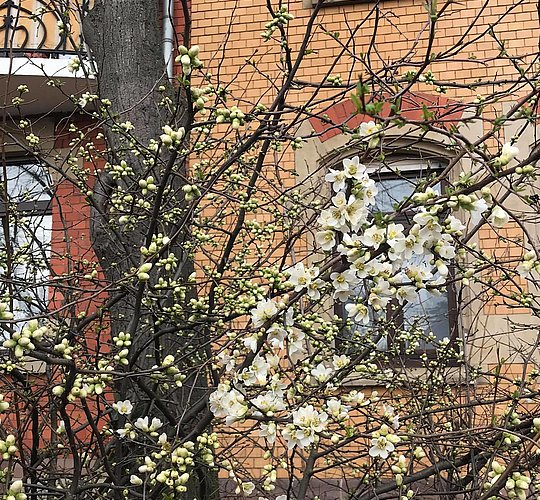
My 3 tips to survive at the Karls
My second semester with Master class has just ended some days ago (with a final essay submission…). As some people asked me how it is as a Karls student, and even though I am not doing great great great, I could give you some of my tips.
- Taking Academic Writing class. Talking a bit about my background, I am not a native English speaker, not even growing up or learning in a well-teaching English environment. My Bachelor is courses-based and required no Bachelor thesis to graduate (I learned 6 extra modules instead of doing the thesis). So, you understand how it was for me facing essays or academic research papers at Karls. I found it is extremely helpful taking Academic Writing class, especially for me and some people already took my pieces of advice. The course helps you to organize the ideas, choose and use the right academic vocabulary, build up proper argumentative structures and use linking words for more coherent paragraphs and cohesive texts (and also how to refer to sources properly…).
- Read. Read. Read. I think this is an overused-advice. But I need to address it again. Maybe that friend you find so bright, so informative, so knowledgeable – though he or she said “oh I just knew it” or “Oh, I didn’t even learn or read about it” – has to read a lot at home too. 😉
- Groupwork is un-avoidable. I am not a fan of group work, to be honest. But it is un-avoidable – No I didn’t mean at the Karls, I meant in working life. In time, I learned to work with people having not only different strengths but also working styles. You, as a team, need to accept it and have to find the balance between the group to deliver the most capable result. Not the best result. It is only the most capable result. Accept it. And accepting the fact that is also one of the successful goals of group work.
I know it might cliché to some of you who come from a maybe better educational background. This is just how I, indeed, have survived during the last 2+ semesters and I hope these would be helpful for someone. :D
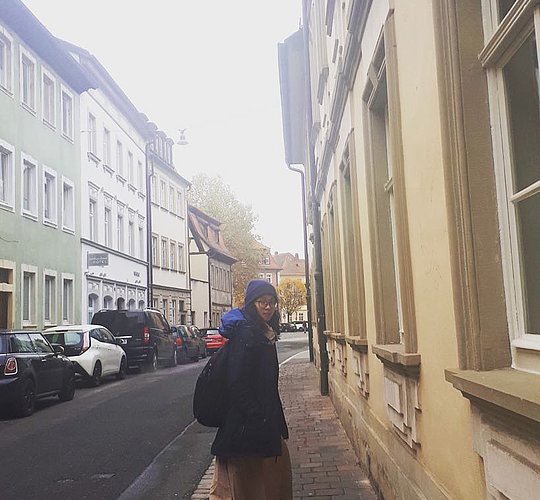
Pan-Asian Identity?
"Công dân toàn cầu" là một khái niệm gia tăng mạnh mẽ trong những năm gần đây tại Việt Nam. Tuy nhiên, tôi càng sống ở Đức, làm quen với nhiều người hơn ở Karlshochschule (gần 50% là người quốc tế) và một số bạn bè của tôi từ các thành phố và khu vực khác trên Đức, tôi nhận ra rằng "công dân toàn cầu" là một khái niệm mà tôi - một sinh viên Việt Nam học tiếng Anh 100% ở Đức - không thể thực sự liên quan.
Lúc nào tôi cũng bối rối nếu có chuyện gì xảy ra và tôi đã thực hiện bất kỳ hành động nào - liệu hành động đó (hoặc quyết định hoặc thậm chí là suy nghĩ đằng sau nó) đến từ tôi - với tư cách là một người Việt mang tất cả nền tảng và văn hóa Việt Nam với tôi? hoặc như một người châu Á nói chung bởi vì chúng tôi đã chia sẻ một số mô hình phổ biến? hoặc nó không thực sự từ cả hai - đó chỉ là tính cách của tôi? Mọi người nói rất nhiều về định kiến châu Á - giỏi toán, nhút nhát, không thích nói chuyện, truyền thống, gầy gò, trông như 12 tuổi ... - và những người khác nói về "Không, chúng tôi không phải là những khuôn mẫu châu Á của bạn!". Đó là nơi tôi cảm thấy bối rối vì tôi chính xác là những định kiến đó - tôi giỏi Toán (vì chuyên ngành của tôi ở trường trung học là Toán ...), tôi thực sự không thích nói (và không nói về thuyết trình, tôi ghét nó quá), tôi là người truyền thống và bảo thủ, gầy ...
Và rồi mọi người cũng nói về chủ nghĩa Tây phương, sau đó là Eurocric hay Eurrialrism, sau đó là sự trỗi dậy của Đông Á và ASEAN ... Chà, không kể đến hai người bạn thân nhất của tôi ở Uni là Ấn Độ và Thổ Nhĩ Kỳ, tôi cũng đã gặp một người Hàn Quốc mà tôi có thể chia sẻ mọi thứ và chúng tôi là những người bạn tốt vì chúng tôi đã tìm thấy rất nhiều điểm chung - không chỉ là thói quen mà còn là suy nghĩ về mọi thứ. Và tôi và hai người bạn Đài Loan khác cũng gọi đó là một cuộc hẹn hò khi chúng tôi ăn mừng năm mới âm lịch này cùng nhau trong năm nay. Vậy có lẽ Pan-Asian là một thứ? Có phải nó cũng được coi là một bản sắc?
Tôi đã từng sợ nhầm lẫn. Bị nhầm lẫn là không tốt. Bị nhầm lẫn có nghĩa là bạn đang đánh mất chính mình. Nhưng tôi không biết nó như thế nào với những người khác, một điều lớn tôi đã học được ở Karls là: không có gì phải nhầm lẫn. Bị nhầm lẫn có nghĩa là bạn quan tâm và bạn đã không làm mọi thứ đơn giản như vẻ ngoài của nó. Việc bối rối khuyến khích tôi đọc và khám phá thêm về nó - (đây là khi tôi tìm thấy các bài báo Pan-Asia, ngạc nhiên;)).
Quốc tịch có thể chỉ ra quốc gia hoặc quốc gia của một quốc gia, nhưng đó là một đại diện thiết yếu hoặc tĩnh của một nền tảng và không tính đến sự thay đổi bản chất của bản sắc được hình thành bởi kinh nghiệm và thế giới quan của một người. Và tôi tin rằng nói chung chỉ bằng cách đi du lịch khắp thế giới trong một thời gian, bạn thực sự không thể có cảm giác thực sự về "bản sắc". Tôi tin rằng nếu bạn cảm thấy đủ, vào cuối ngày, bạn sẽ xác định một nơi nào đó bạn thuộc về một cách tự hào - thậm chí đó là một nơi nào đó "ở giữa" hoặc "không gian lai" bất cứ điều gì nó được gọi, nhưng nó sẽ không phải là "toàn cầu" .
The Karls
Con người tại The Karls
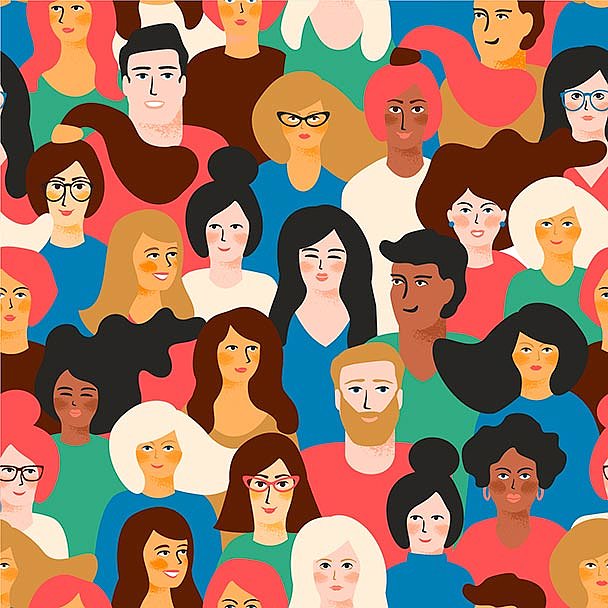
Ở Đức, các sinh viên gọi nhau là "Kommilitonen" - từ này gốc Latin có nghĩa là "chiến binh đồng đội". Và nó diễn tả chính xác những gì thực sự diễn ra: Tại Karls, mình có cảm giác mọi người xung quanh mình đều có một mục tiêu chung để làm việc và cổ vũ nhau làm những điều đúng đắn. Từ các giáo sư, đến nhân viên trường cũng như các bạn sinh viên khác đều được truyền cảm hứng để tạo ra một điều gì đó lớn lao hơn như - giải quyết các vấn đề môi trường, phát triền bền vững vì một thế giới tốt đẹp hơn. Chính vì vậy mình cảm thấy như không có bất kỳ thứ bậc nào ở đây. Mình có thể trò chuyện với các giáo sư của mình dễ dàng như với bạn cùng lớp. Mình có thể tự hào nói rằng: Mọi người ở đây là những người đã biến Karlsruhe thành ngôi nhà thứ hai cho mình.
Triết lý giáo dục tại The Karls
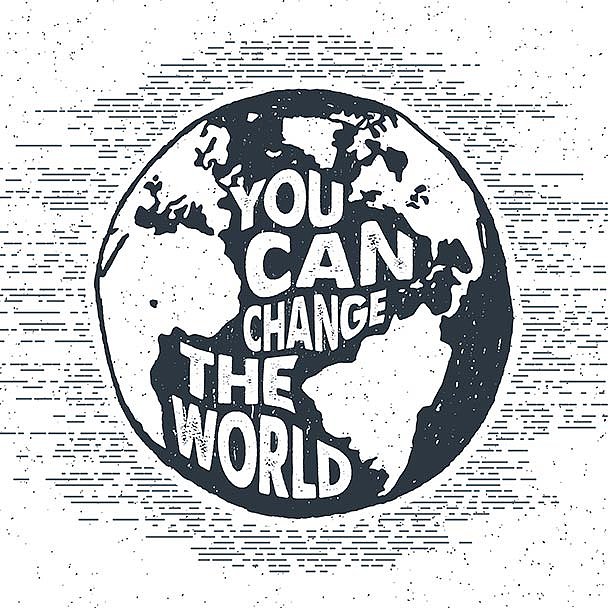
Karls phát triển triết lý kiến tạo cũng như quy thức mô phạm của riêng mình. Thông tin chính xác có thể tìm thấy trên trang karlshochschule.de nhưng mình có thể chia sẻ cảm nhận của riêng mình về triết lý và cách nó trở nên hiện hữu trong cuộc sống của mình. Nói ngắn gọn thì, ở Karls, mình có thể để bản thân và ý tưởng của mình được thoải mái phát triển. Mình có thể kết hợp kiến thức, lý tưởng cùng kỳ vọng của mình lại với nhau và đào sâu chúng hơn khi trao đổi hoặc tranh luận với các bạn sinh viên khác. Ý tưởng của mình được nhìn nhận một cách nghiêm túc ở đây - mình học hỏi từ các giáo sư, dĩ nhiên rồi, nhưng các giáo sư cũng học hỏi từ mình. Thay vì một chương trình giảng dạy nghiêm ngặt và hàng tấn kiến thức lý thuyết, tại Karls, mình được cung cấp khối lượng lớn thông tin mà tôi có thể tái cấu trúc chúng theo ý muốn và nhiều cơ hội để vận dụng chúng một cách thực tế nữa.
Giáo dục tại The Karls
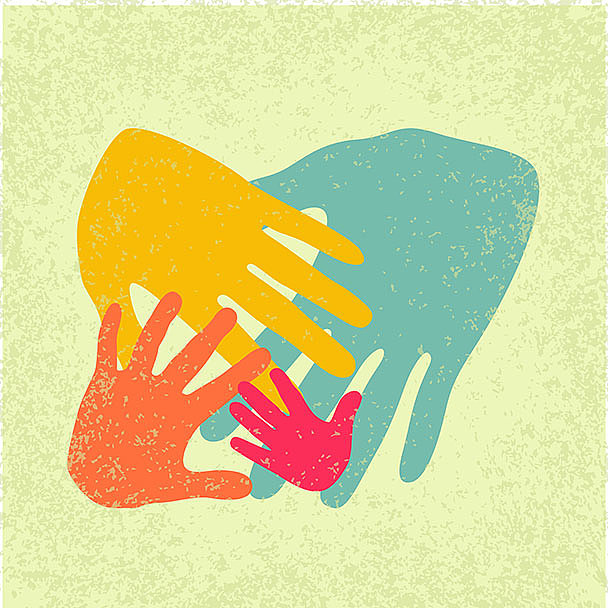
Mỗi sáng đến Karls, mình sẽ "tình cờ" được nghe các cuộc trò chuyện giữa các bạn cùng lớp bằng tiếng Anh, tiếng Đức, tiếng Pháp, tiếng Tây Ban Nha và nhiều ngôn ngữ khác. Chính sự trao đổi liên văn hóa mở này cũng định hình trải nghiệm học tập tại Karls. Một cách tự nhiên, bạn được học cách để vượt qua các ranh giới. Ví dụ như đôi khi nó là chủ đề của cả một khóa học: các nhà kinh tế cần quan tâm hơn đến tính bền vững, bảo tồn môi trường và công bằng xã hội. Ngược lại, các nhà xã hội học tại Karls đang nghiên cứu phát triển các mô hình kinh doanh hướng tới việc thay đổi cách chúng ta hiểu về quản lý thông ghường. Không có rào cản ngôn ngữ nào là quan trọng tại Karlshochschule. Hầu hết các khóa học đều bằng tiếng Anh, và khóa học tiếng Đức bổ sung nằm ngay trong chương trình giảng dạy từ ngày đầu tiên!
Chuyên ngành Quản Trị
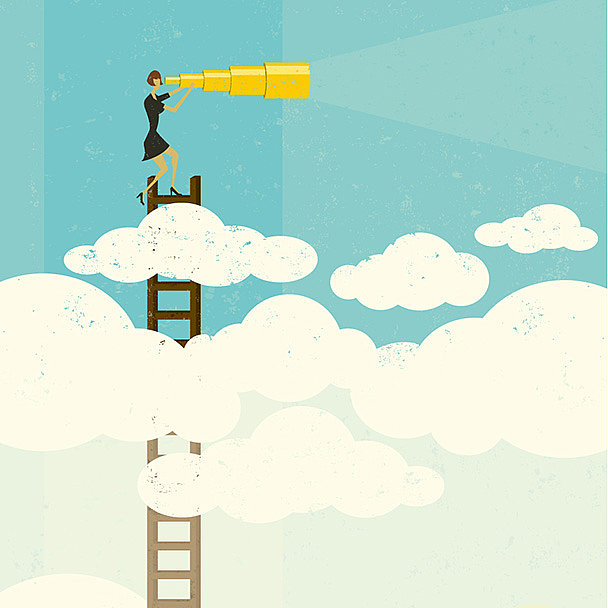
Tương lai của chúng ta sẽ như thế nào? Làm thế nào để hình dung về ngày mai? Trong chương trình của chuyên ngành quản trị, bạn sẽ được học cách đưa ra những quyết định có trách nhiệm đối với thế giới đầy phức tạp này - mà trong đó kỹ năng đàm phán cũng quan trọng ngang với sự thấy hiểu và cảm thông. Các đường dẫn bên dưới sẽ cung cấp thêm thông tin về các lựa chọn có trong chuyên ngành này.
Chuyên ngànhKinh tế quốc tế
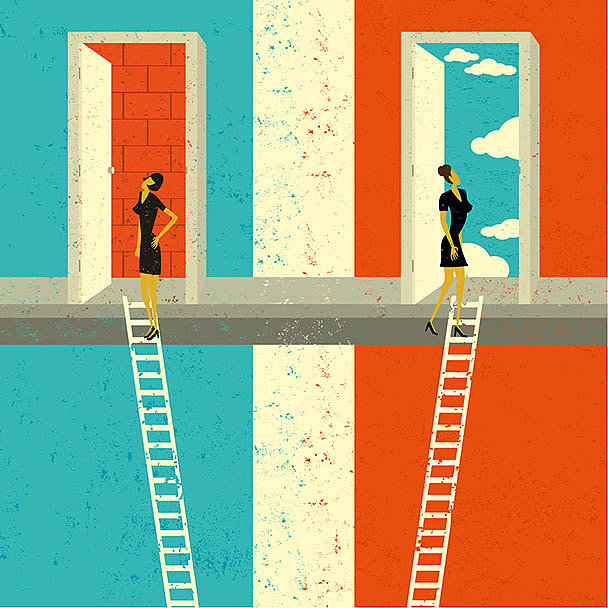
Nếu bạn không theo đuổi quan niệm rằng kinh tế chỉ đơn giản là một trò chơi của những con số, mà thay vào đó là thấy hiểu và vận dụng những vấn đề kinh tế trong bối cảnh đa văn hóa, vậy thì bạn đã tìm đến đúng nơi rồi đó. Bạn có thể thiết kế việc học và theo đuổi các chuyên ngành theo ba lĩnh vực khác nhau.
Chuyên ngànhXã hội
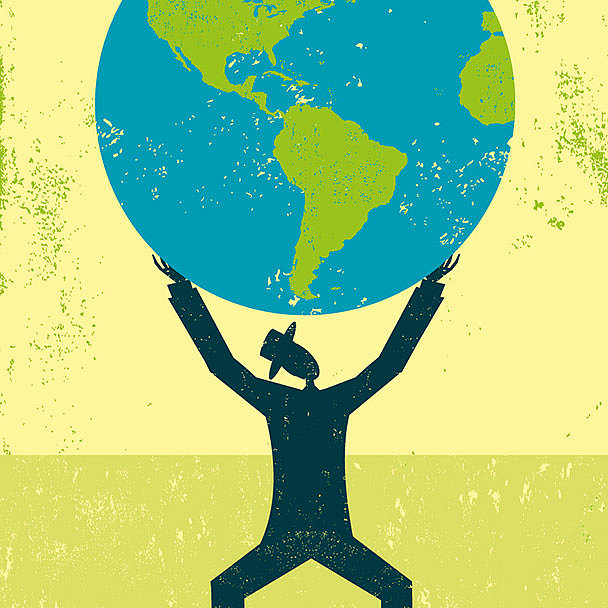
Thế giới không chỉ cần những người Thự Thi - mà còn cần cả những người Suy Nghĩ. Những người mà sau sẽ thay đổi luật chơi trong tương lai và hành động như những nhân tố chính trên các diễn đàn kinh tế cũng như chính trị. Trong bốn khóa học chuyên ngành "Xã hội" bên dưới, bạn sẽ được hướng dẫn cụ thể những gì bạn cần làm!
Thạc Sỹ Quản Trị (Management - M.A.)
Bản chất của kinh tế là đàm phán giữa các chủ thể liên quan. Không có một chân lý phổ quát mà chỉ đơn giản là những góc nhìn được vận dụng tốt. Đây chính xác là những gì mà khóa học Thạc sỹ cố gắng truyền tải: tại đây, sinh viên và giảng viên cùng nhau nghiên cứu những chủ đề văn hóa và khoa học xã hội và cách thức vận dụng chúng vào trong hoạt động quản trị.
Các chuyên ngành
Möchtest du in der Kreativindustrie Fuß fassen oder ein eigenes Start-up gründen? Möchtest du im politischen System deines Landes etwas bewegen oder als Verantwortlicher eines NGOs gesellschaftliche Änderungen vorantreiben? Was auch immer deine Vision ist: Der Masterstudiengang bietet dir sechs verschiedene Spezialisierungen aus denen du zwei auswählen kannst – so kannst du dein Studium genau auf deine Ziele ausrichten.

Way to Karls
Điều kiện nhập học
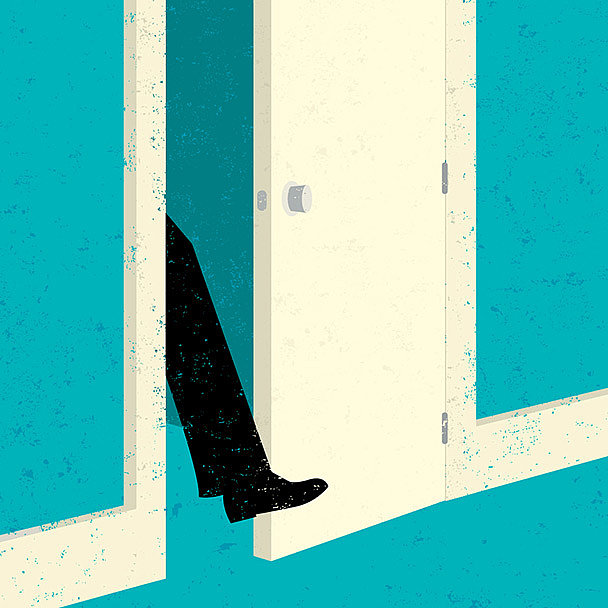
Ở Karls, điểm số không phải là tất cả. Do đó, những gì được đặt lên hàng đầu khi nhìn nhận một con người chính là sự quyết tâm cũng như những giá trị làm nên con người đó - và đó là những điều không thể đong đếm được. Yếu tố quan trọng nhất trong Hồ sơ Online của bạn chính là Thư Động Lực (Motivation Letter). Đó là cơ hội để bạn thể hiện mình là ai và tại sao bạn là một nhân tố mà Karls tìm kiếm. The Karls là trường đại học được Bang bảo chứng và phải tuân theo những quy định về hệ thống tuyển sinh tại Đức: Do đó, một điều kiện tiên quyết khác là bằng cấp ba của bạn phải được công nhận bởi hệ thống giáo dục Đức.
Trung tâm hỗ trợ
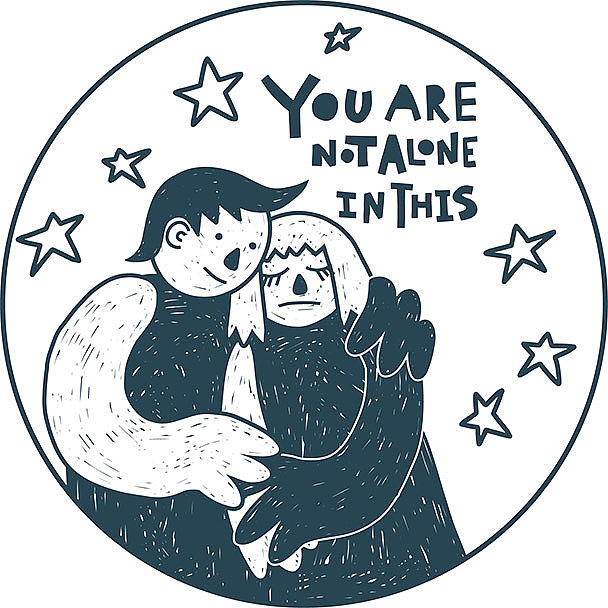
Mình tập hợp đây - file PDF - những thông tin cần thiết tương thích với sinh viên Việt Nam. Bạn có thể tìm thấy danh sách những việc cần làm chuẩn bị cho hành trình đến Karls - từ thư động lực, hướng dẫn làm thế nào để nộp xin trợ cấp cũng như học bổng thậm chí cho đến cách điền Đơn nộp xin thị thực. File PDF còn có những thông tin quan trọng khác như: những địa chỉ liên hệ nào quan trọng - ví dụ như Lãnh sự quán. Mà thậm chí nếu bạn thấy không chắc chắn điều gì đó - đừng lo lắng: Mình ở đây - bạn có thể hỏi mình nhé!
International Foundation Year

Nếu bạn đang nghĩ "Karls chính xác là những gì mình muốn" - thì hãy bắt đầu tìm hiểu ngay về chương trình Dự bị đại học - International Foundation Year - tại The Karls (rất tiếc, học dự bị đại học là điều kiện bắt buộc cho tất cả sinh viên Việt Nam khi muốn học đại học tại Đức - một số trường hợp ngoại lệ bạn có thể tham khảo thêm trong file PDF nhé). Trong một năm dự bị đại học, bạn sẽ được học tất cả những kiến thức cần thiết và sau đó thi cuối kỳ. Đồng nghĩa rằng sau đó bạn sẽ đủ điều kiện nhập học tại Karls. Hãy liên hệ với mình nếu bạn cần tìm hiểu thêm về chương trình nhé.
Get in Touch
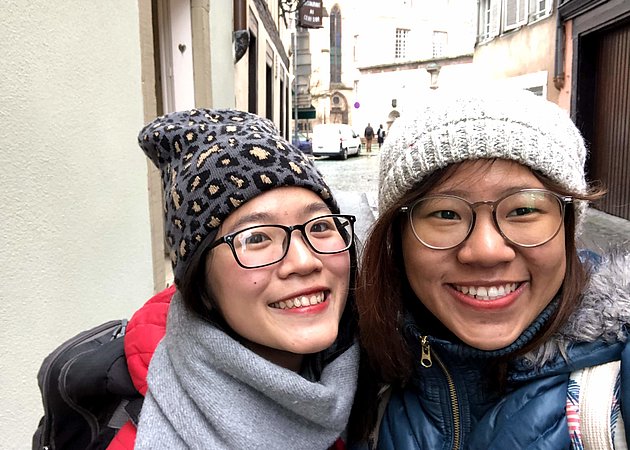
Karls-FAQ
https://karlshochschule.de/en/faq/
Ambassador (by me)
Câu trả lời là...KHÔNG nhưng
The Answer is... NO but HIGHLY RECOMMENDED.
At Karlshochschule, both Master and Bachelor programs don't require any level of German before you attend. In Karlsruhe, an (quite) international students friendly city, you can still survice without any German. However, it's still highly recommended that you know at least basic (or even intermediate and advanced) German. This would really really helpful for your first time being here from finding the room, city registration and any other things.
And to be honest, I had only A1 German level with me when I were here 1 year ago, well, It's not something big but it really helped in term of...not fearing all the super long Name of streets and Documents here.
In the long run, to live and to experience Germany at the fullest (and I think it's the same with any cities or countries), it is a must to improve your German to make your life here easier, to find job, to communicate with anyone you met.
In Karlsruhe specifically, there is a large English-speaking expat community, not just from the U.K. but also Ireland, South Africa, Australia, U.S, Canada and New Zealand. There is a total of 5 Irish Pubs in Karlsruhe which all have a variety of events such as: Pub Quizzes’, Live music, speaking tandem tables (Stammtisch), Sprach Café, several Facebook groups and forums for British ex-pats in Germany. Working in an Irish Bar whilst studying at the Karls gave me the opportunities to meet like-minded people in the same situation as me. This the nice aspect about moving away and can really help when being away from home.
Specifically, there is also a quite huge Vietnamese student community in Karlsruhe - from KIT University.
While studying, a lot of our students also work part-time, whether it be as a student assistant at Karlshochschule, in the KarlsCafé or in one of the local shops, bars and cafés in the city center. International students may hold a part-time job to support their financial means but can only work a maximum of 20 hours per week as a working student “Werkstudenten”.
During the semester break you may work for more than 20 hours per week, if the job is scheduled for a short period of time (two months / 50 work days).
Luckily, I worked in Vietnam project and also coordinate in International marketing at the University (since I have worked in similar jobs before coming here) so I can cover 100% my living cost here.
Make use of the opportunities you have in Karlsruhe – sometimes this can be a great way to meet new people outside of the university, it can also help you meet German people and integrate into the city / culture.
Always check to see if there are jobs going at the Karls – it can be a really effective way of funding your lifestyle when studying full-time.
You can try to find a mini job at the University, there are quite some options as librarian, marketing support / content producer or being a barista at the Karlscafé – An Initiative – A small and cozy roof-top campus cafe right at the Karls, ran fully by Students.
Trying to look for work in a pub or bar is definitely something to recommend too.
Buy a Bike! Karlsruhe is the bike-friendliest city in Germany as voted by cyclists, you can get around easily to the whole city via bike as you will see when you arrive here. You definitely won’t need a car here, if you do there are several car-sharing apps and services available. A bike is cheaper than a tram ticket, it is healthier and with the hottest climate in Germany, it’s definitely more satisfying.
Embrace every opportunity that comes to you!
Germany in general and Karlsruhe specifically, is conveniently located in the heart of Europe. As an EU citizen or with an EU Schengen visa, you have the liberty of travelling throughout Europe freely. There are always special offers with Deutsche Bahn (DB) to certain cities, giving you the chance to enjoy a city break on a student budget (without jumping on a plane). This is a liberty we don't really have in the Vietnam. I could go to Munich, Paris, Prague, Zurich, Berlin and many more, all within 5-6 hours on the train or bus.
Alongside this, there are numerous swimming lakes around the city which are great in summer time and Karlsruhe is only 45 minutes away from the Black Forest.






